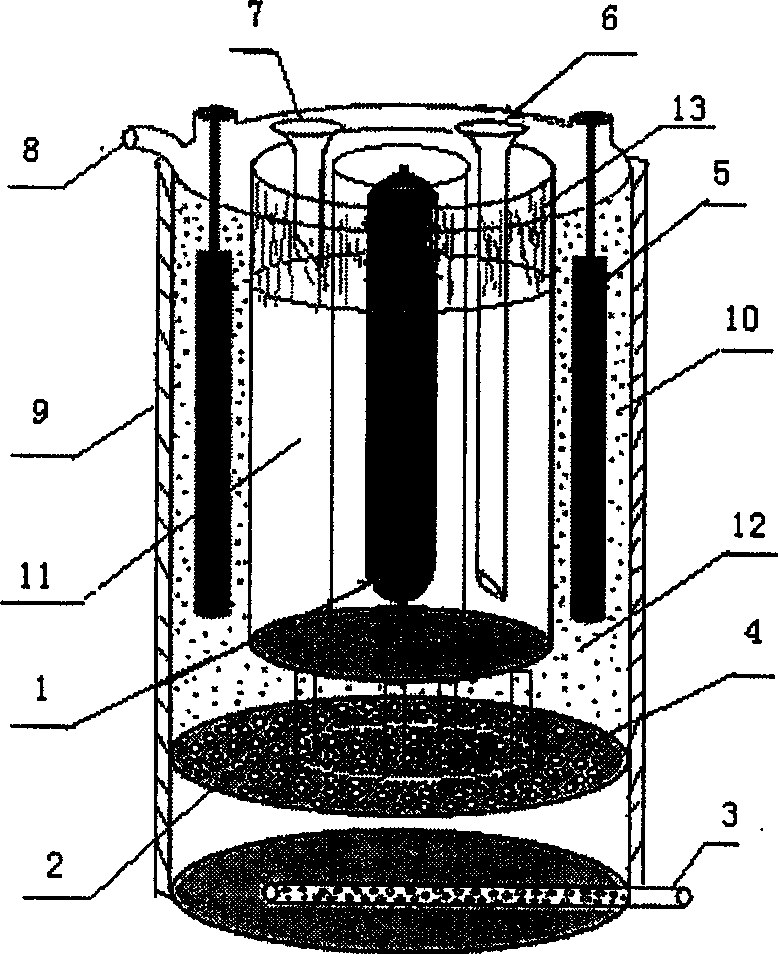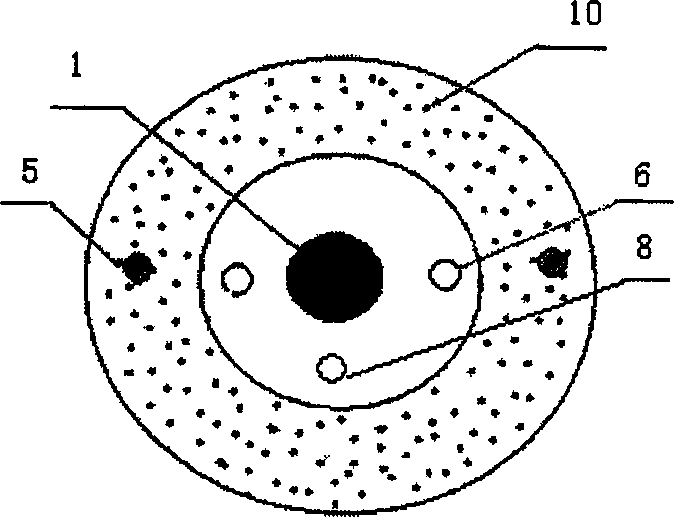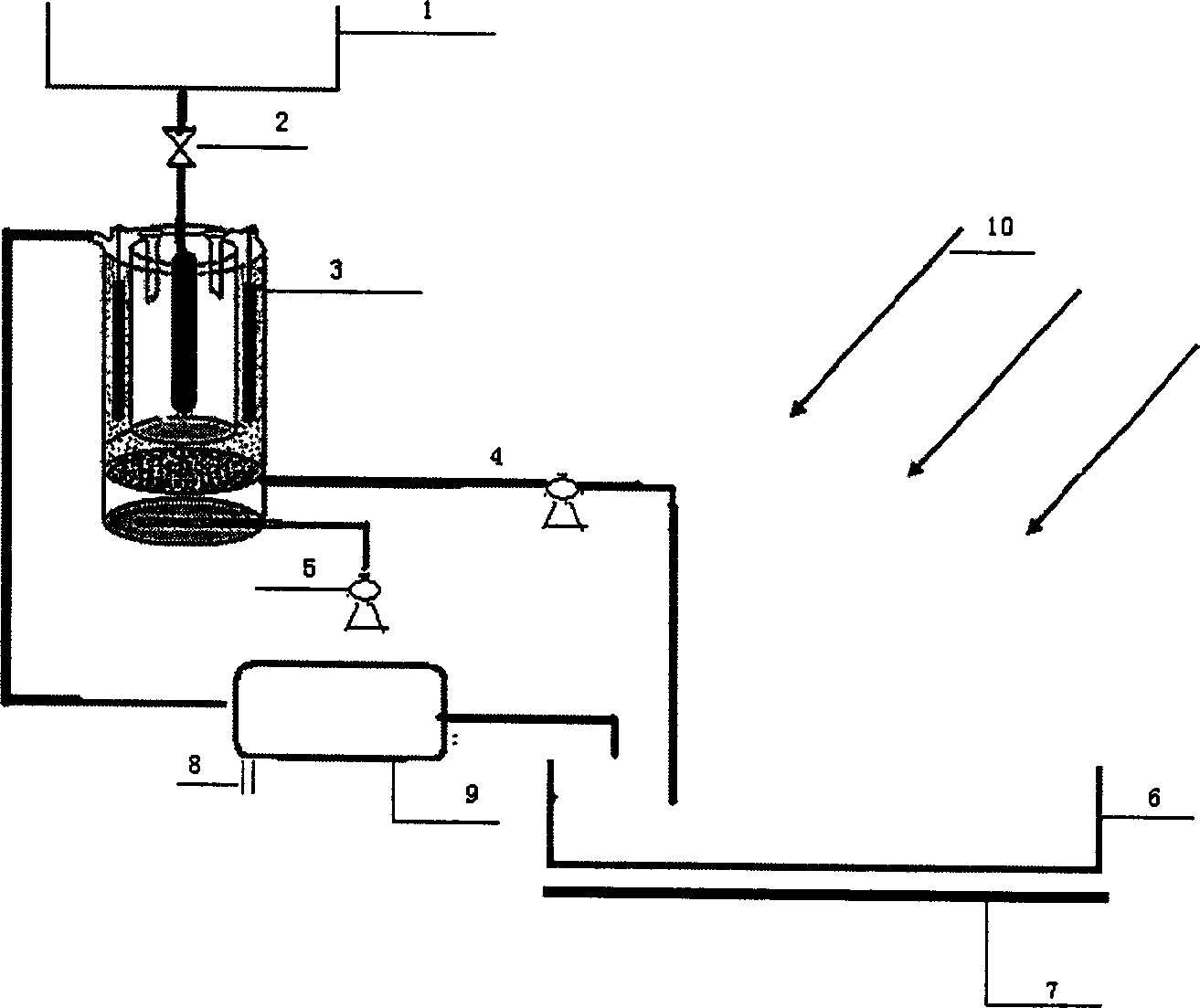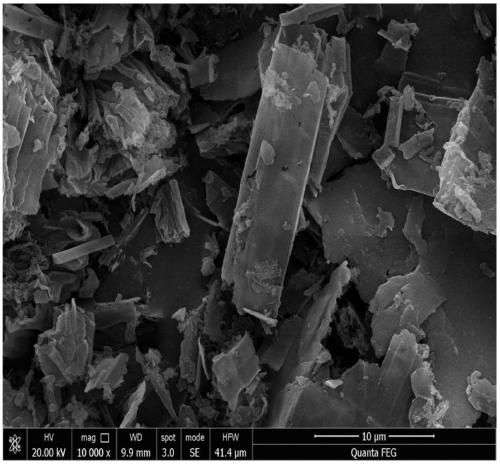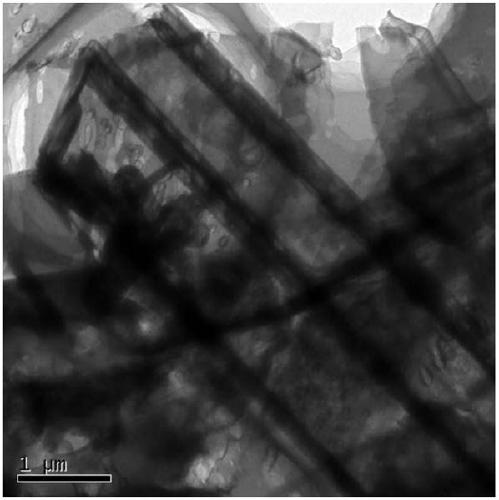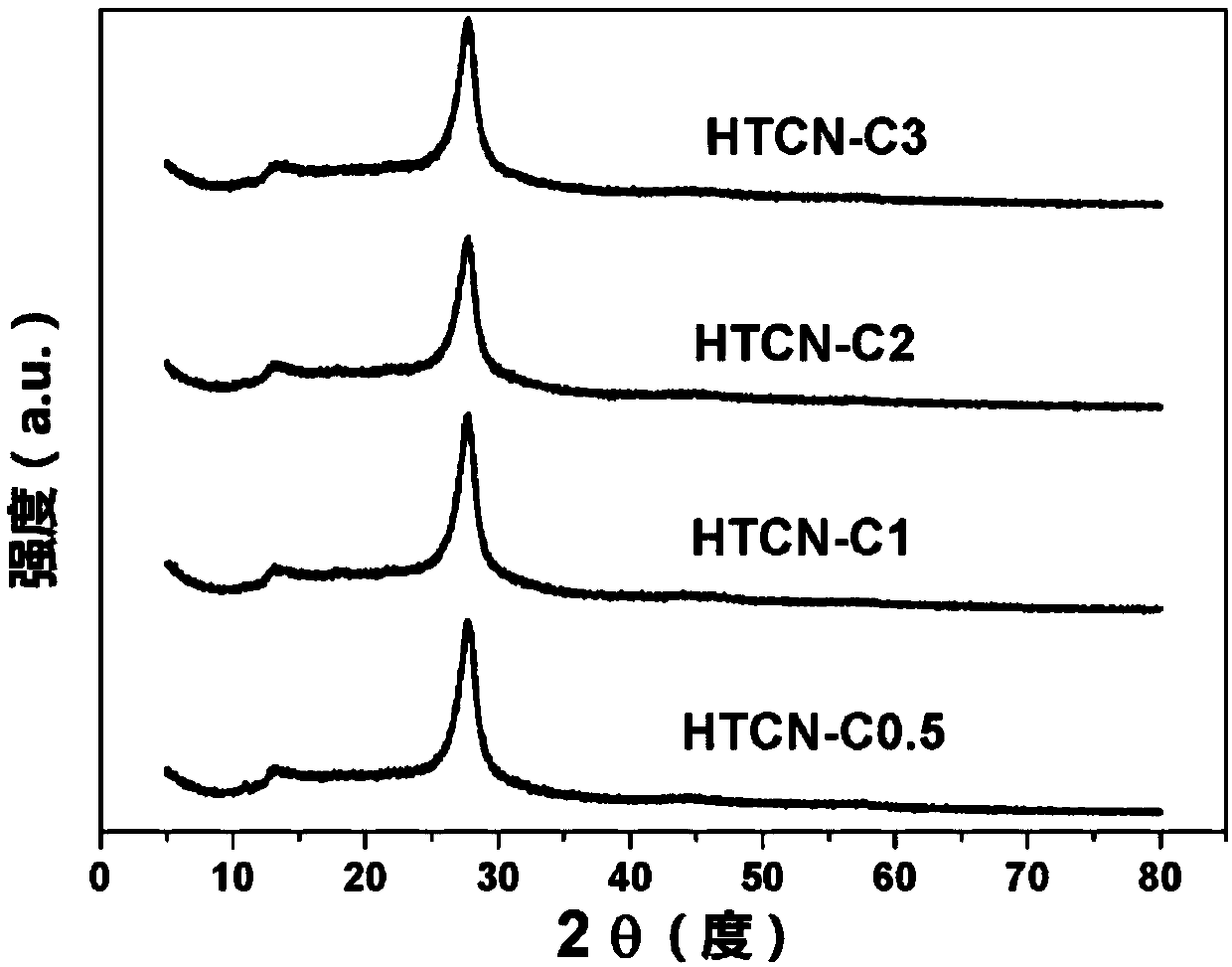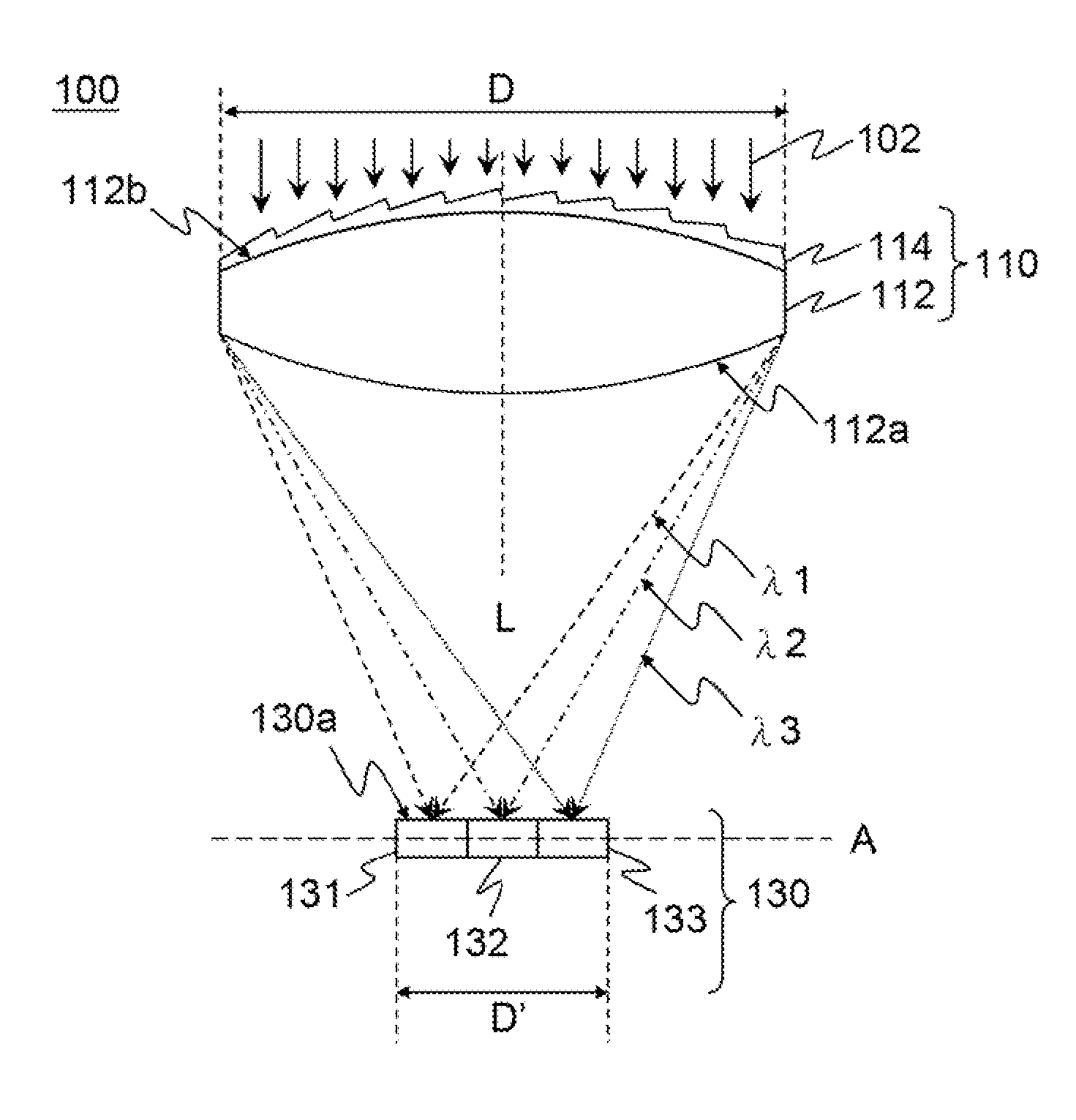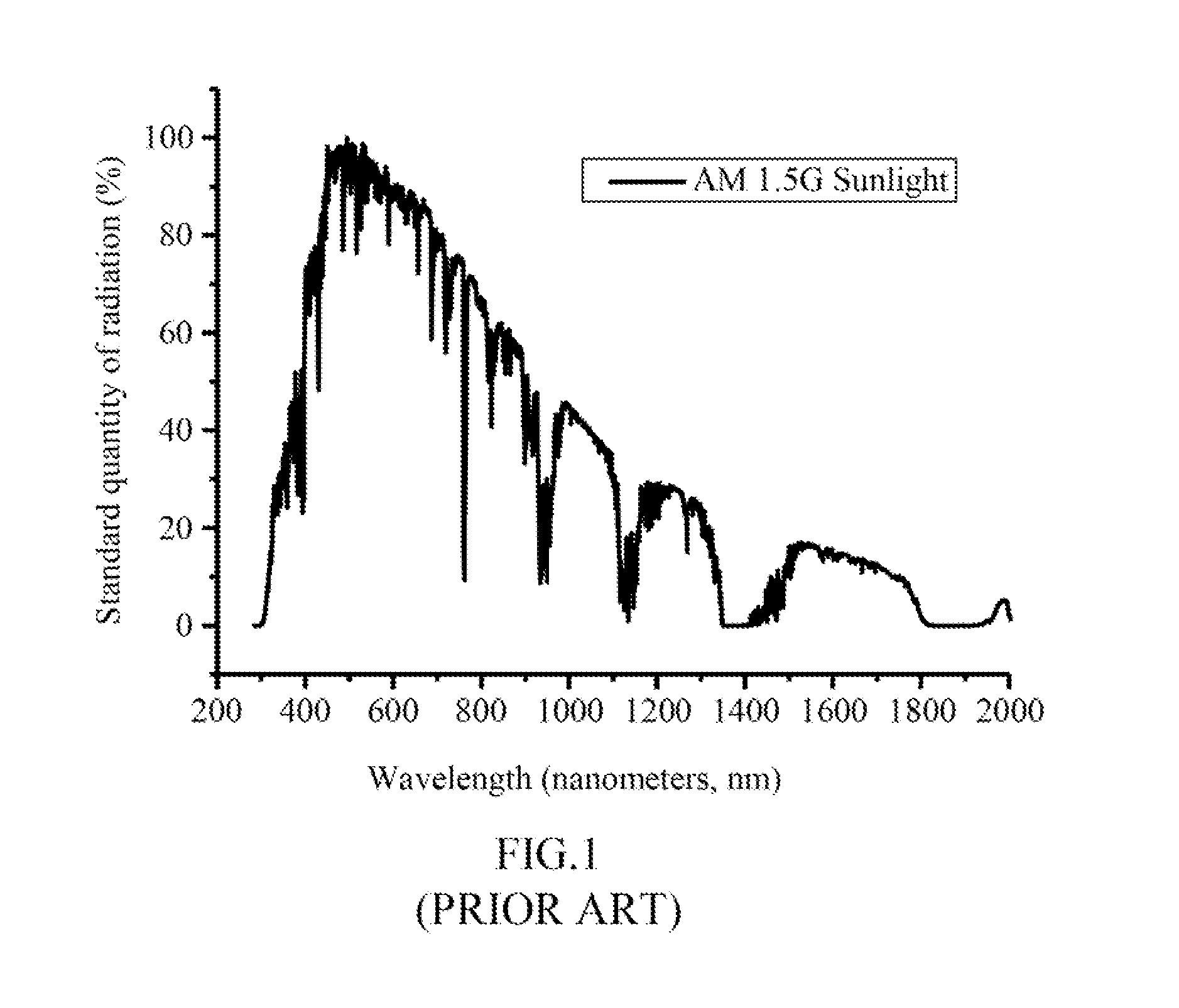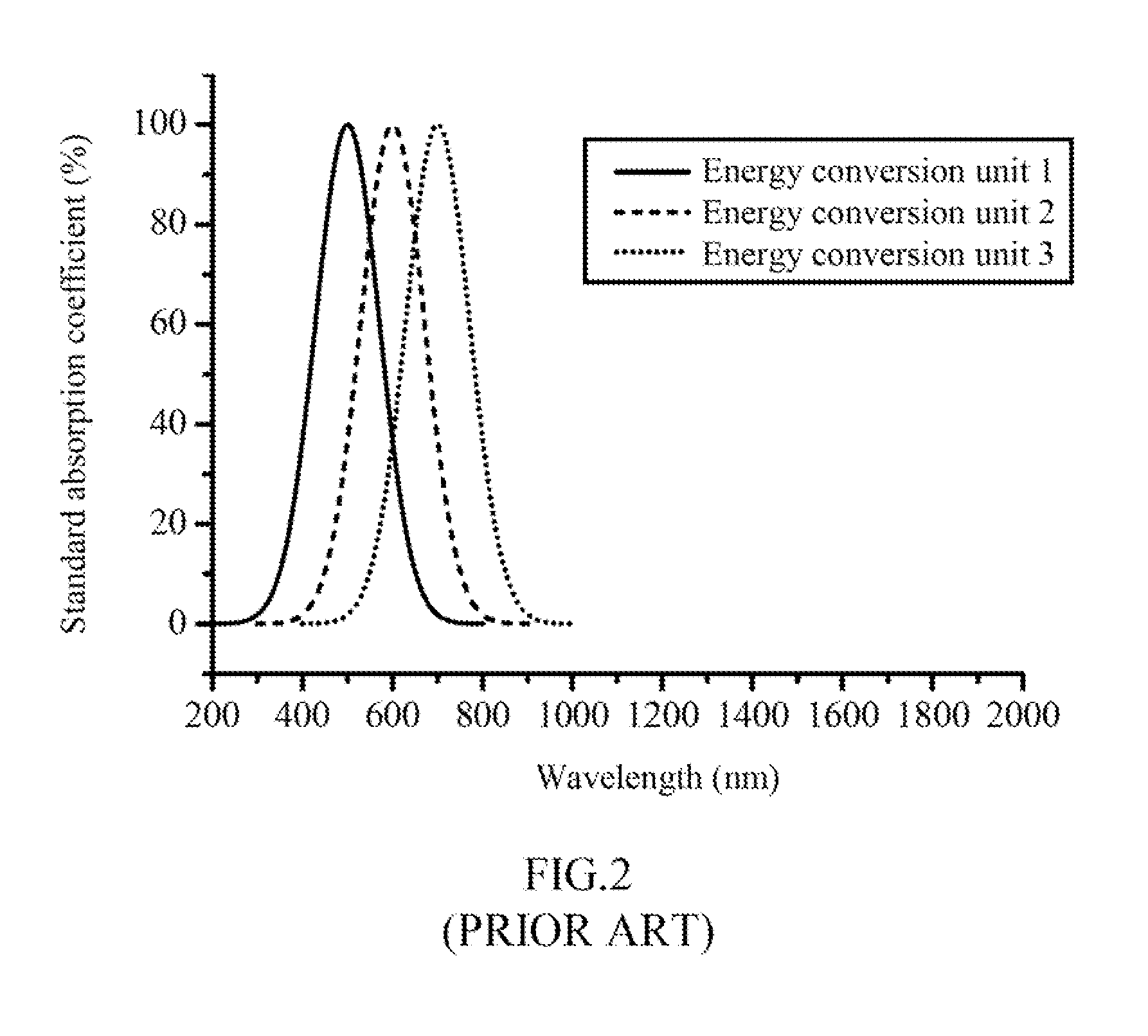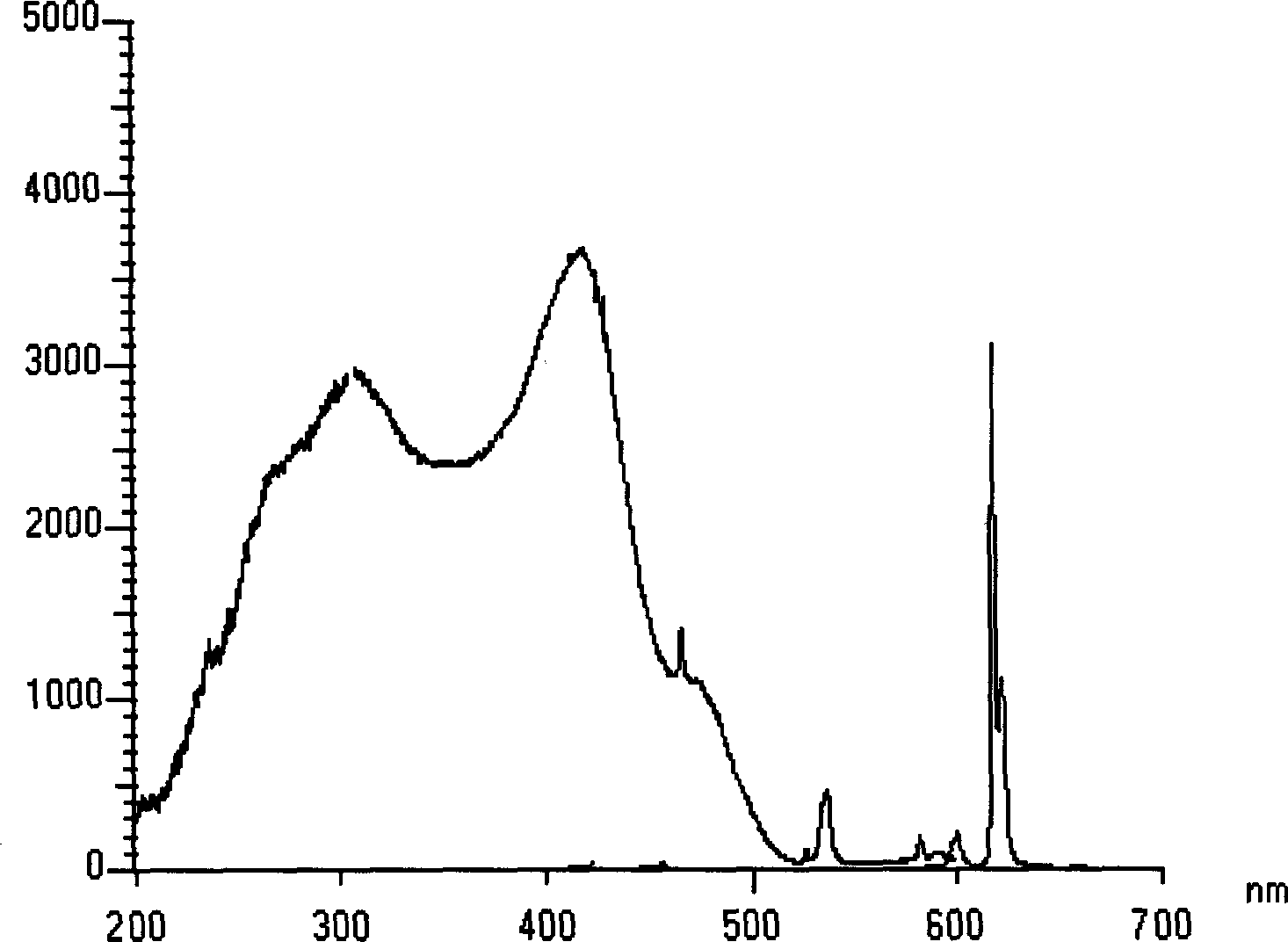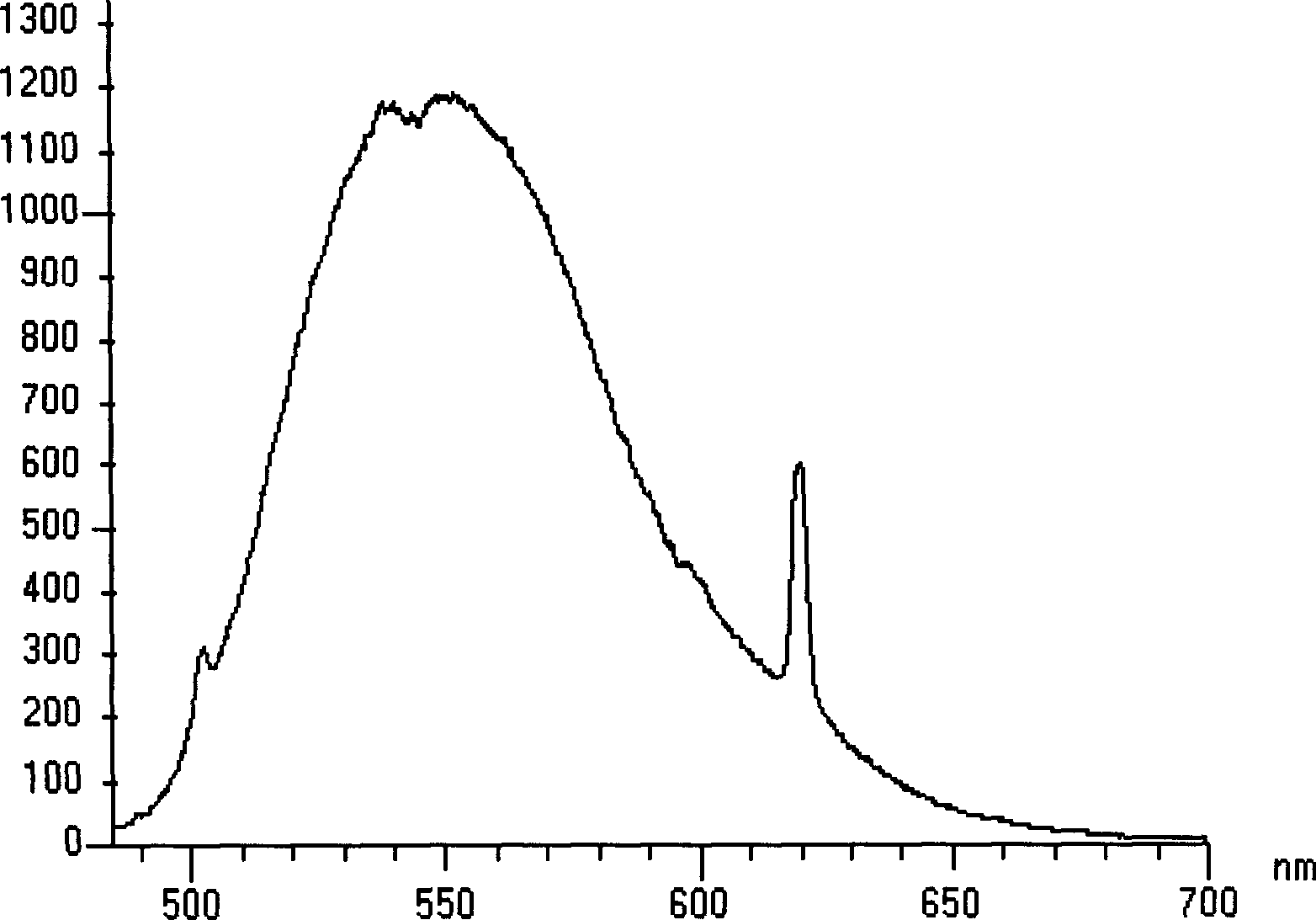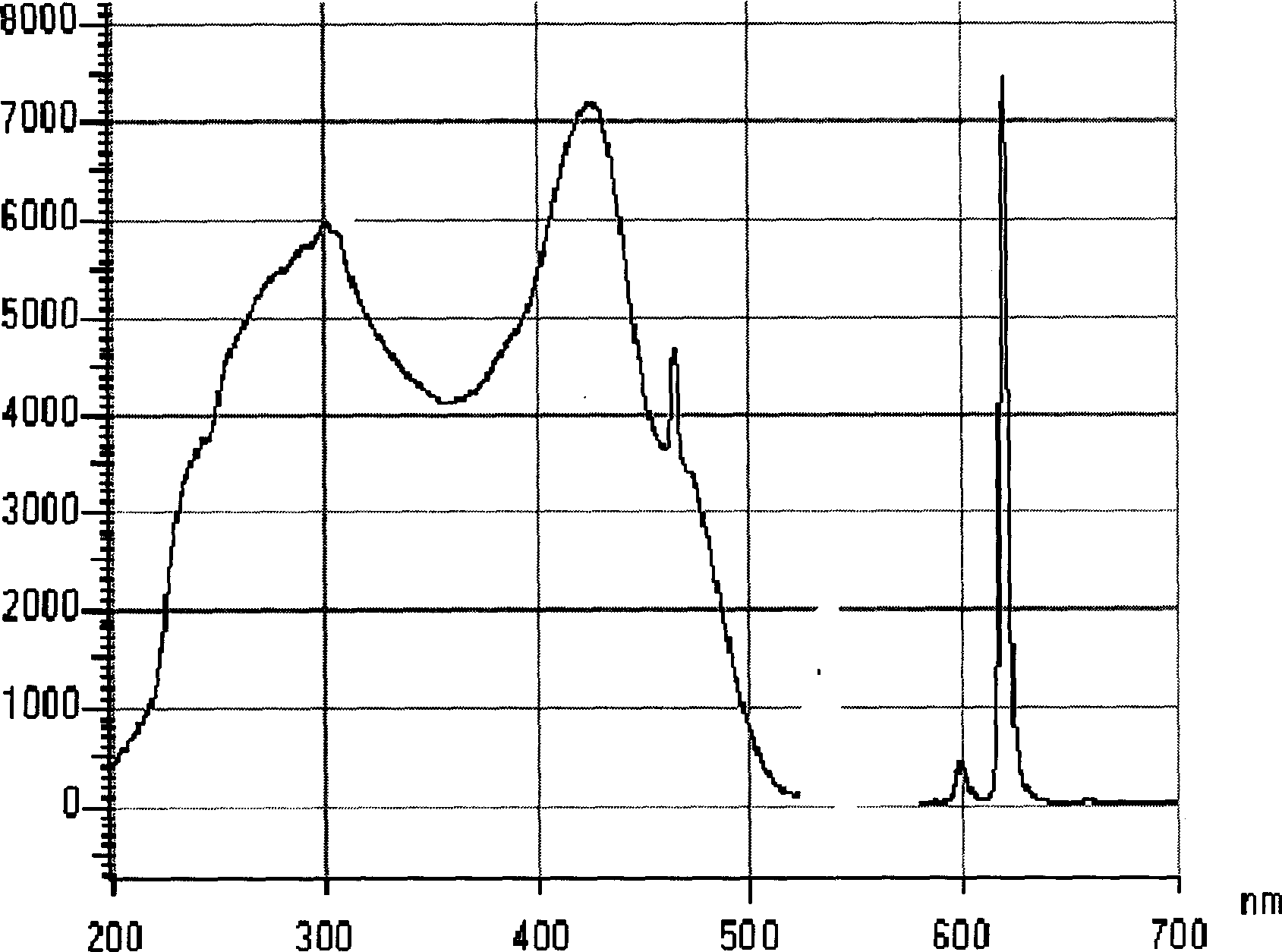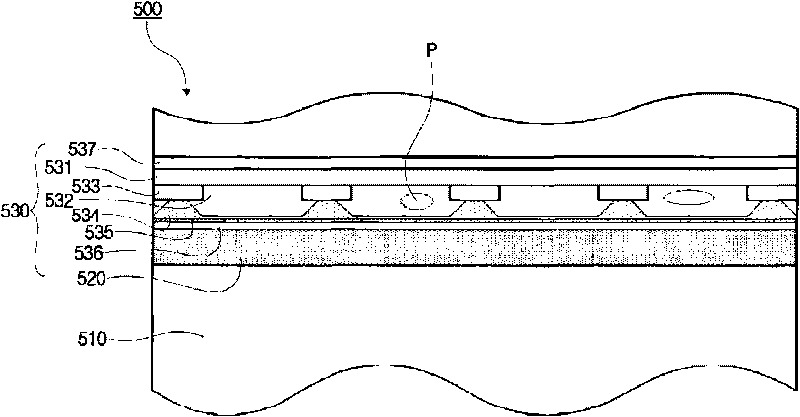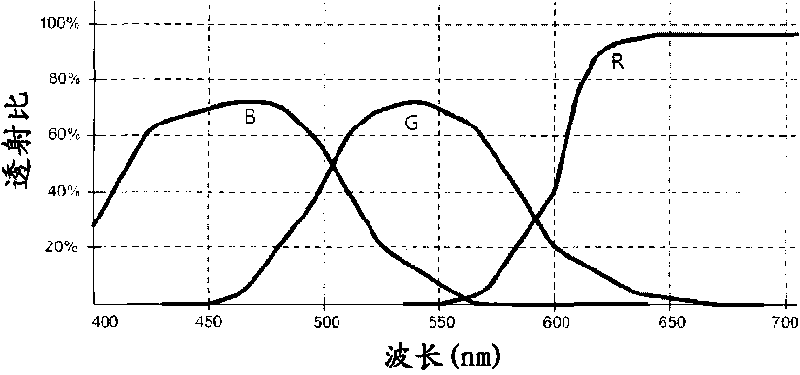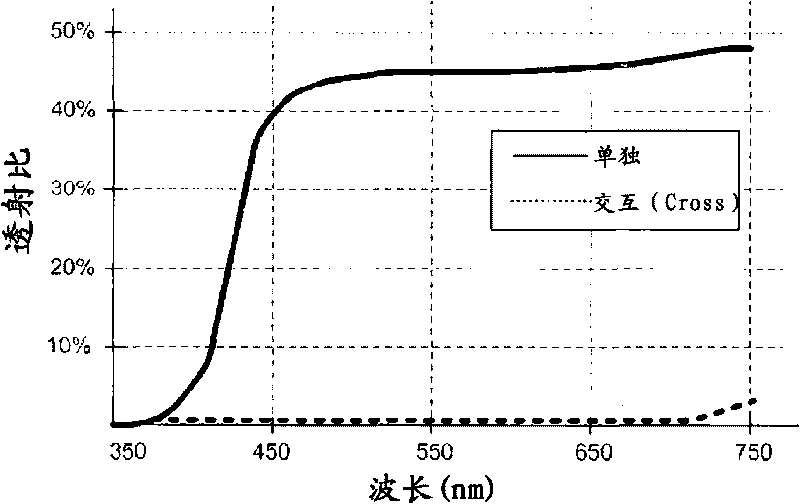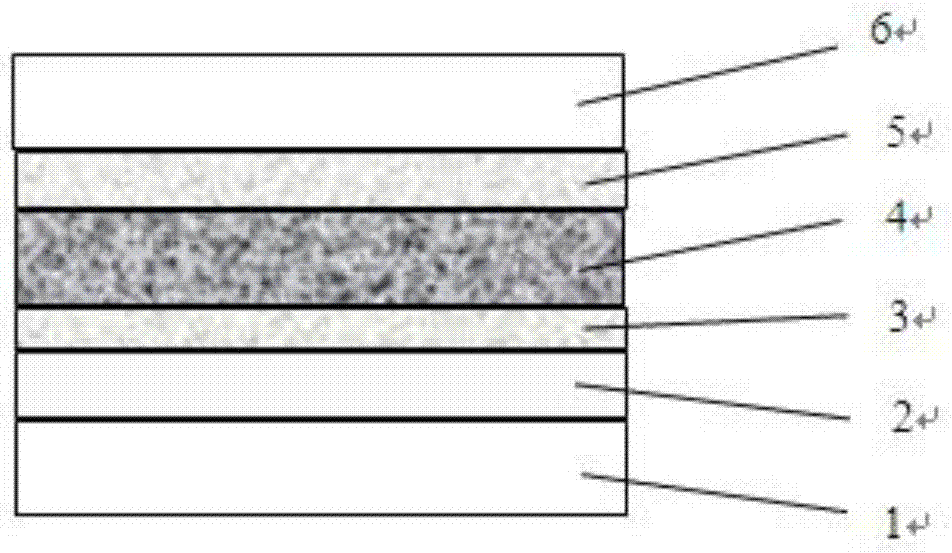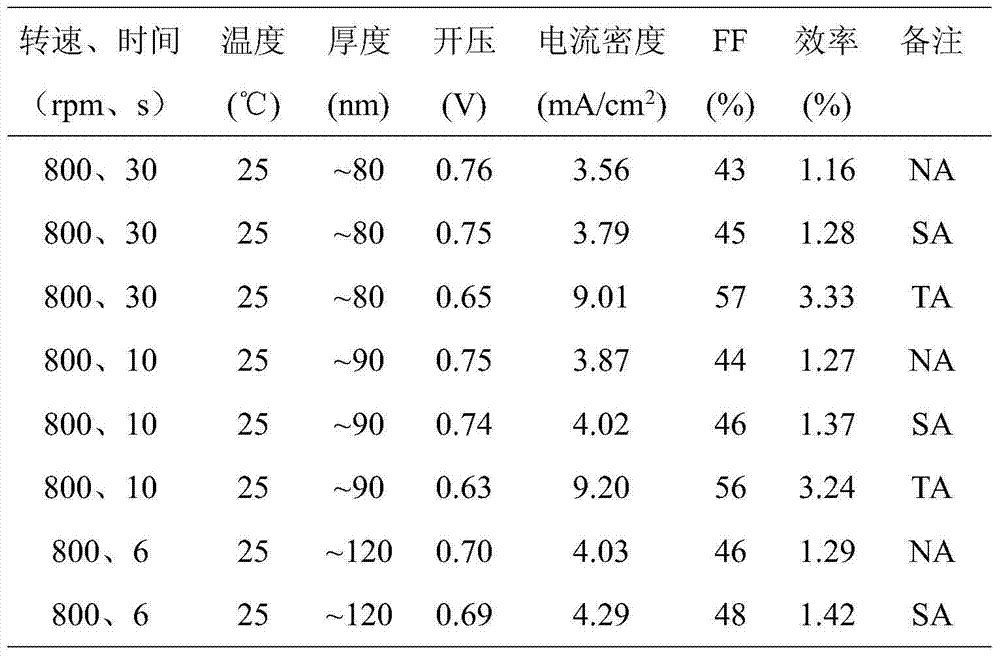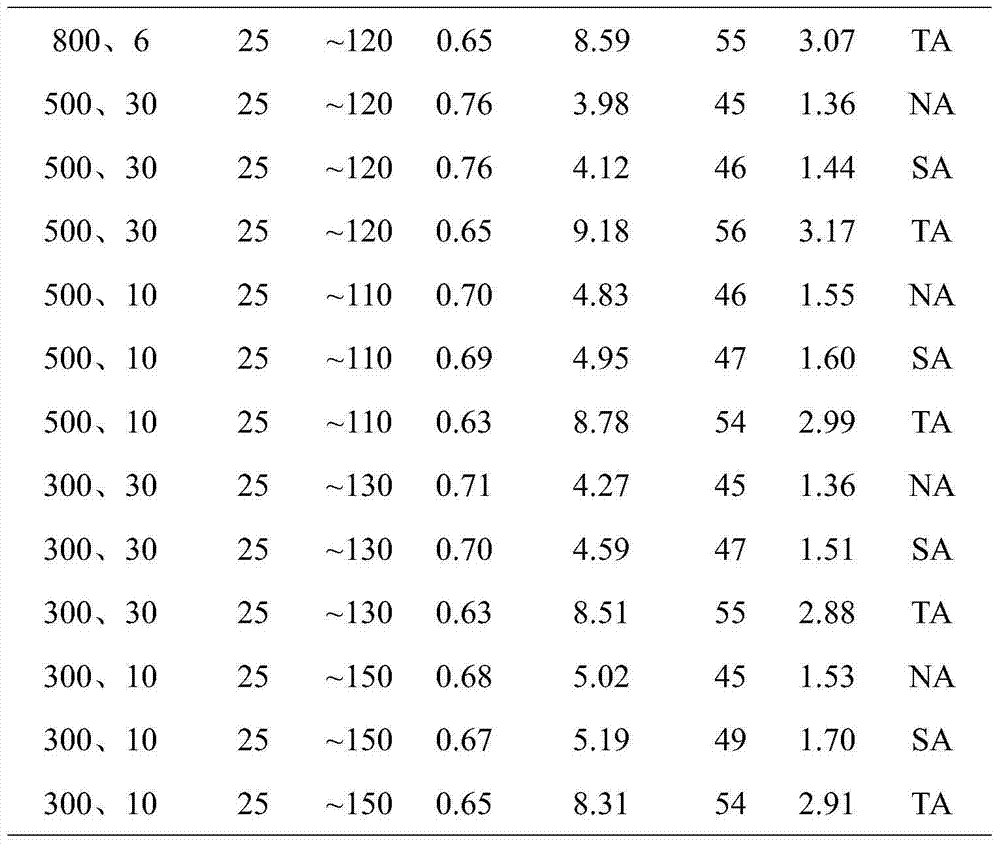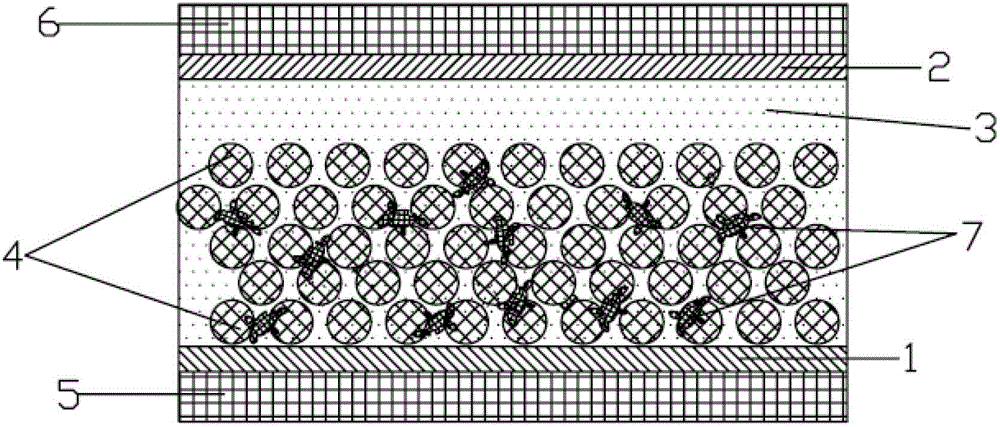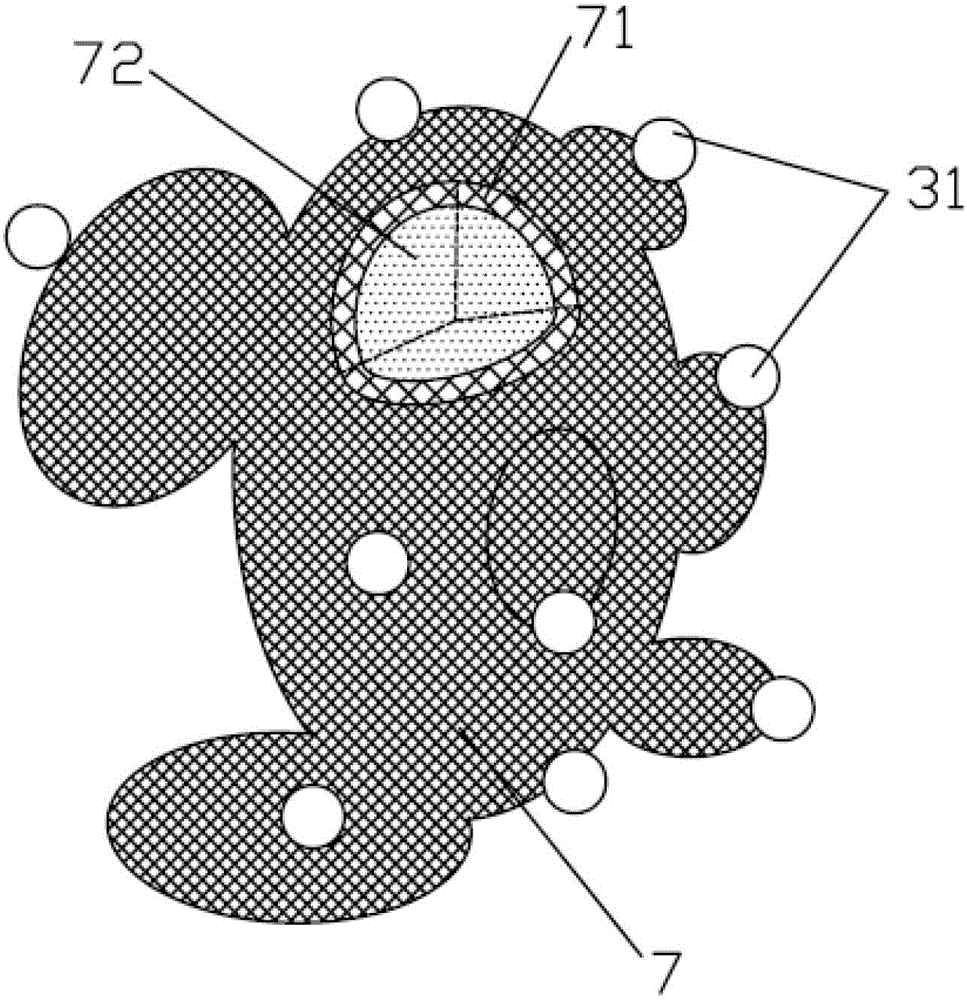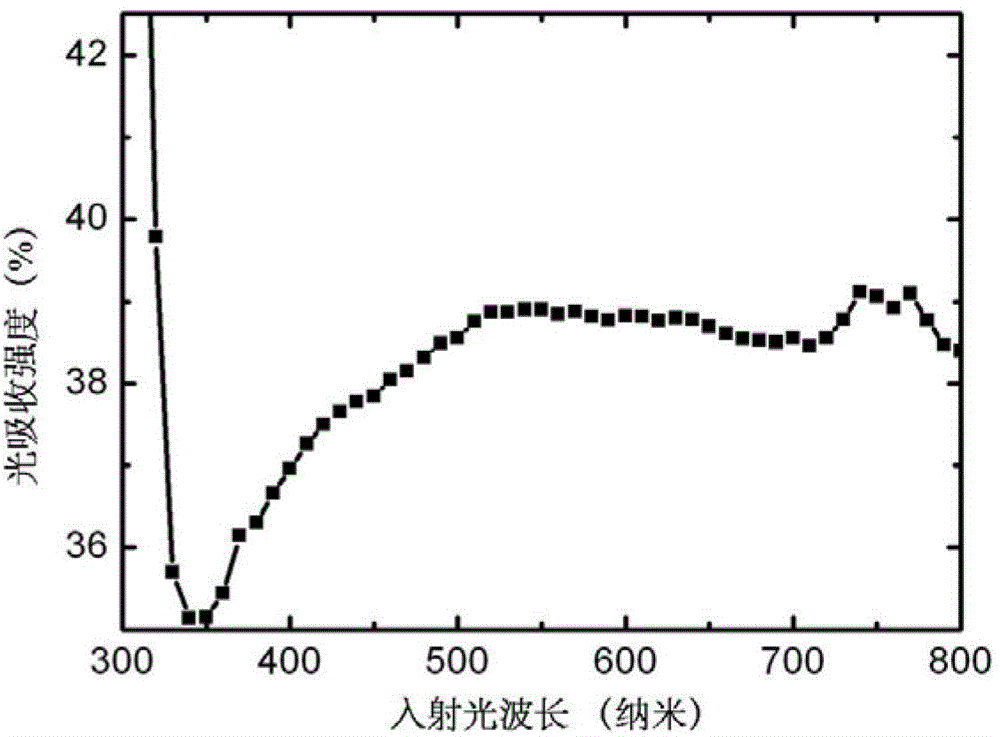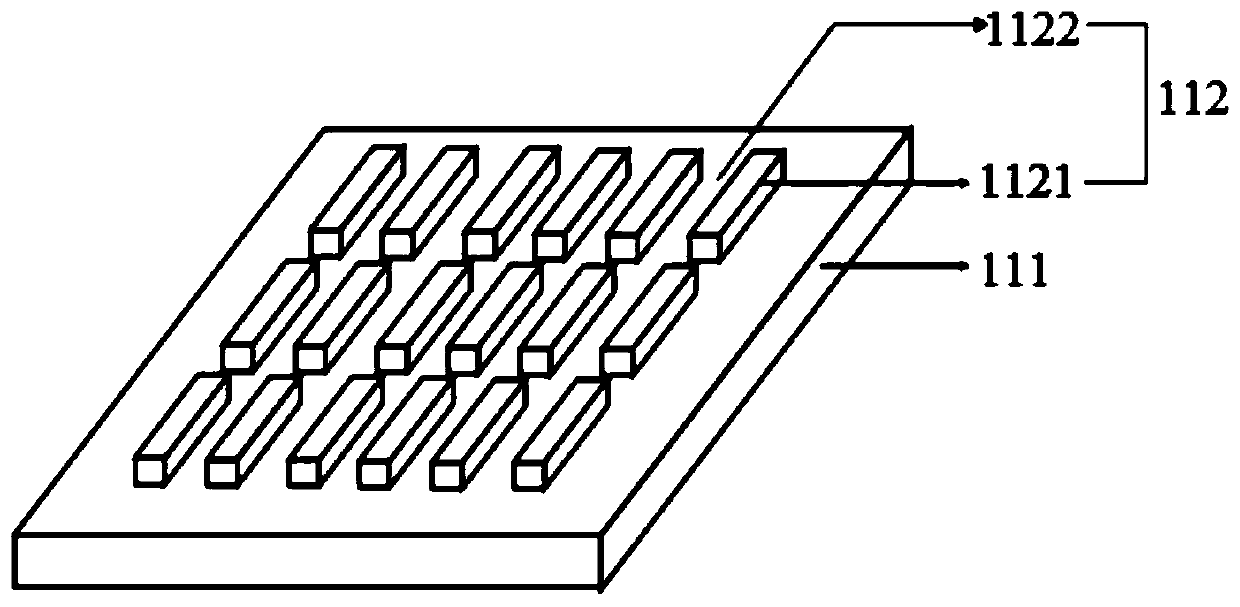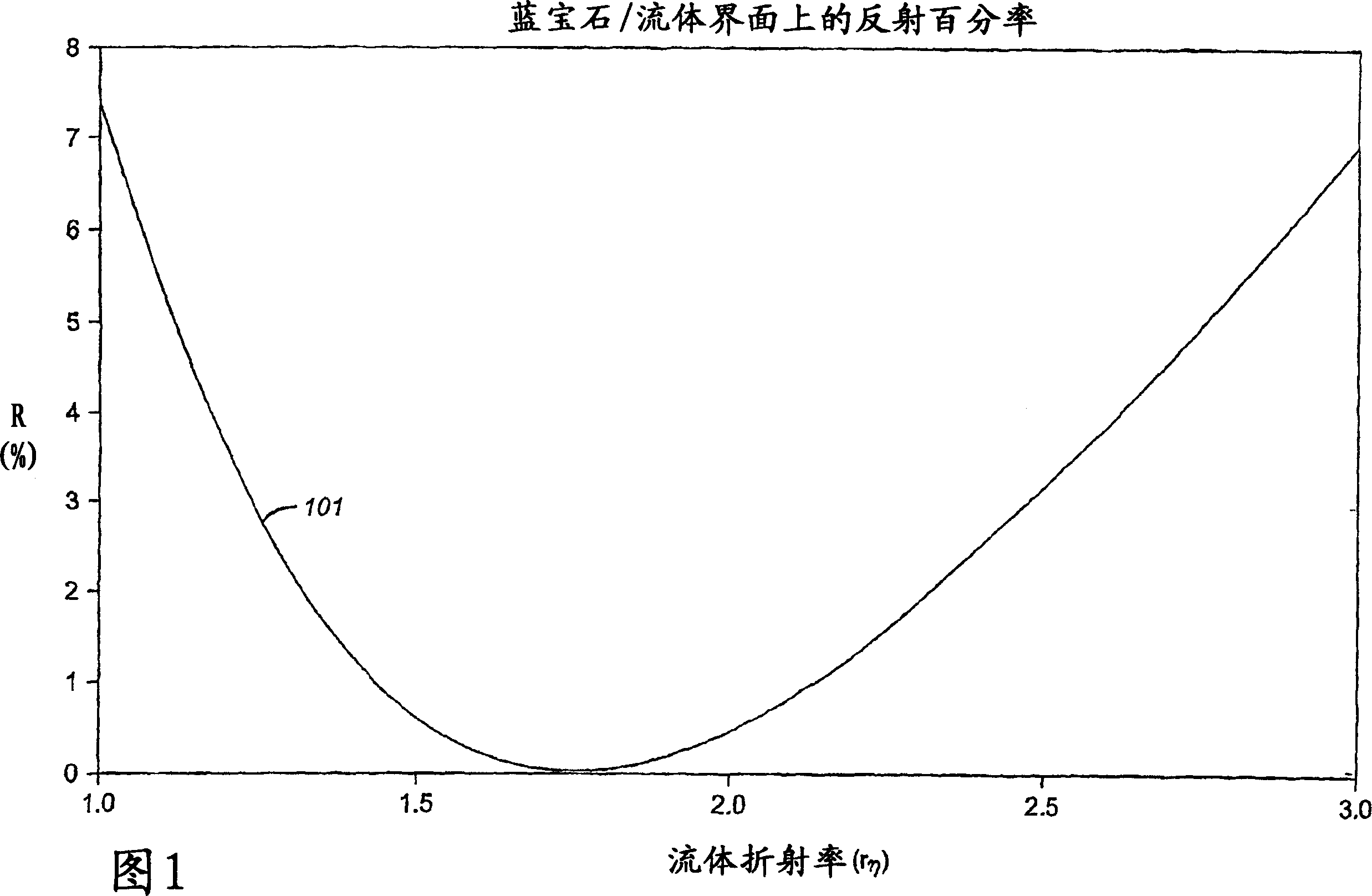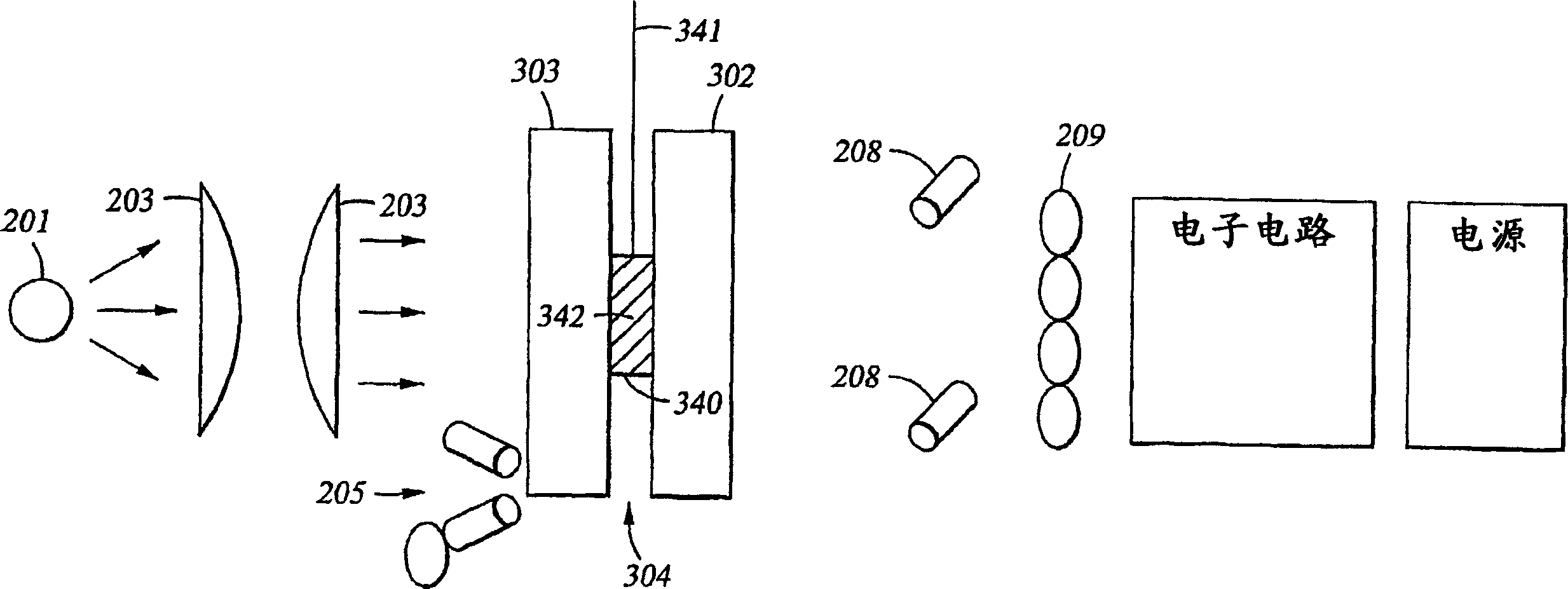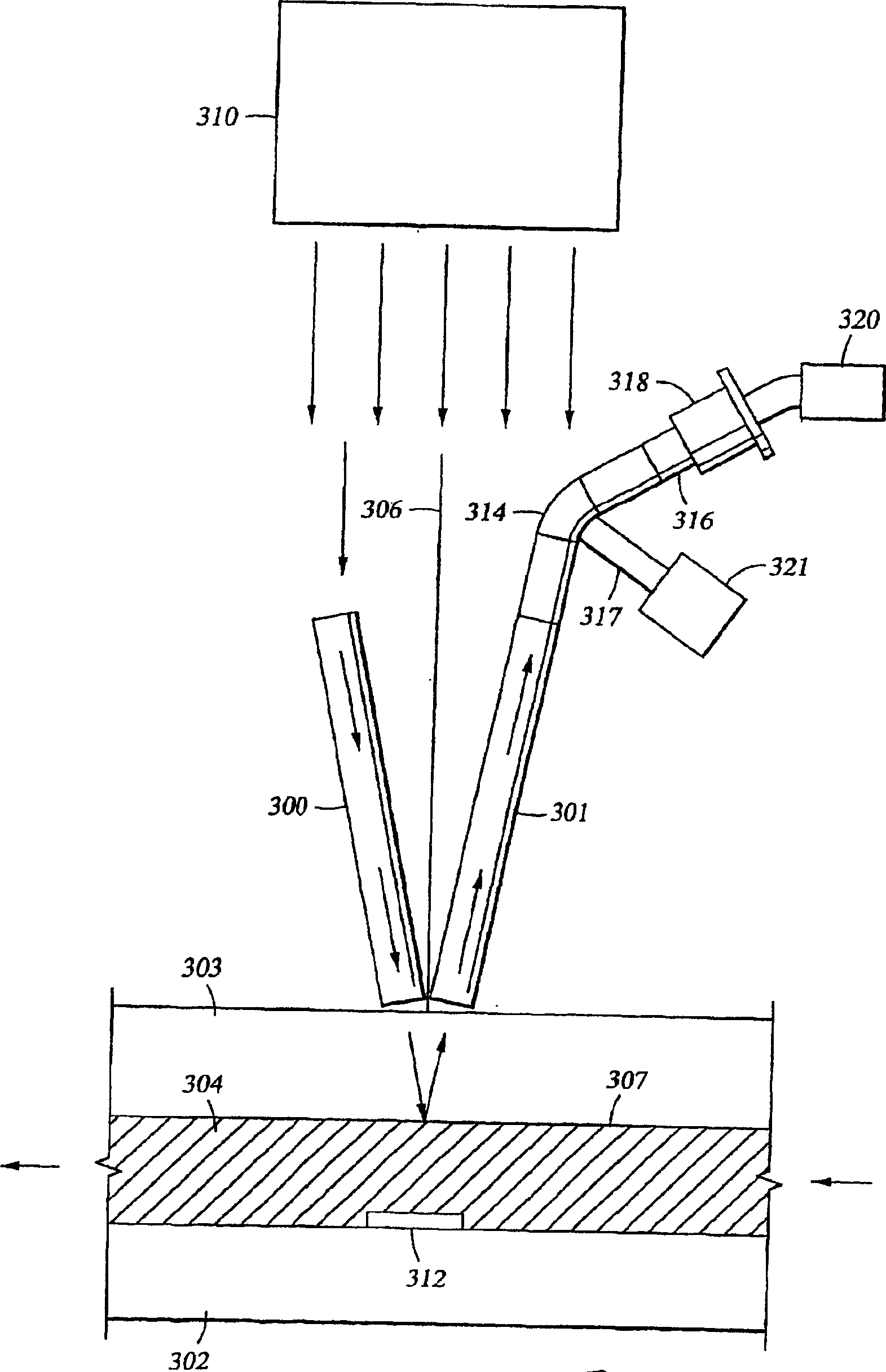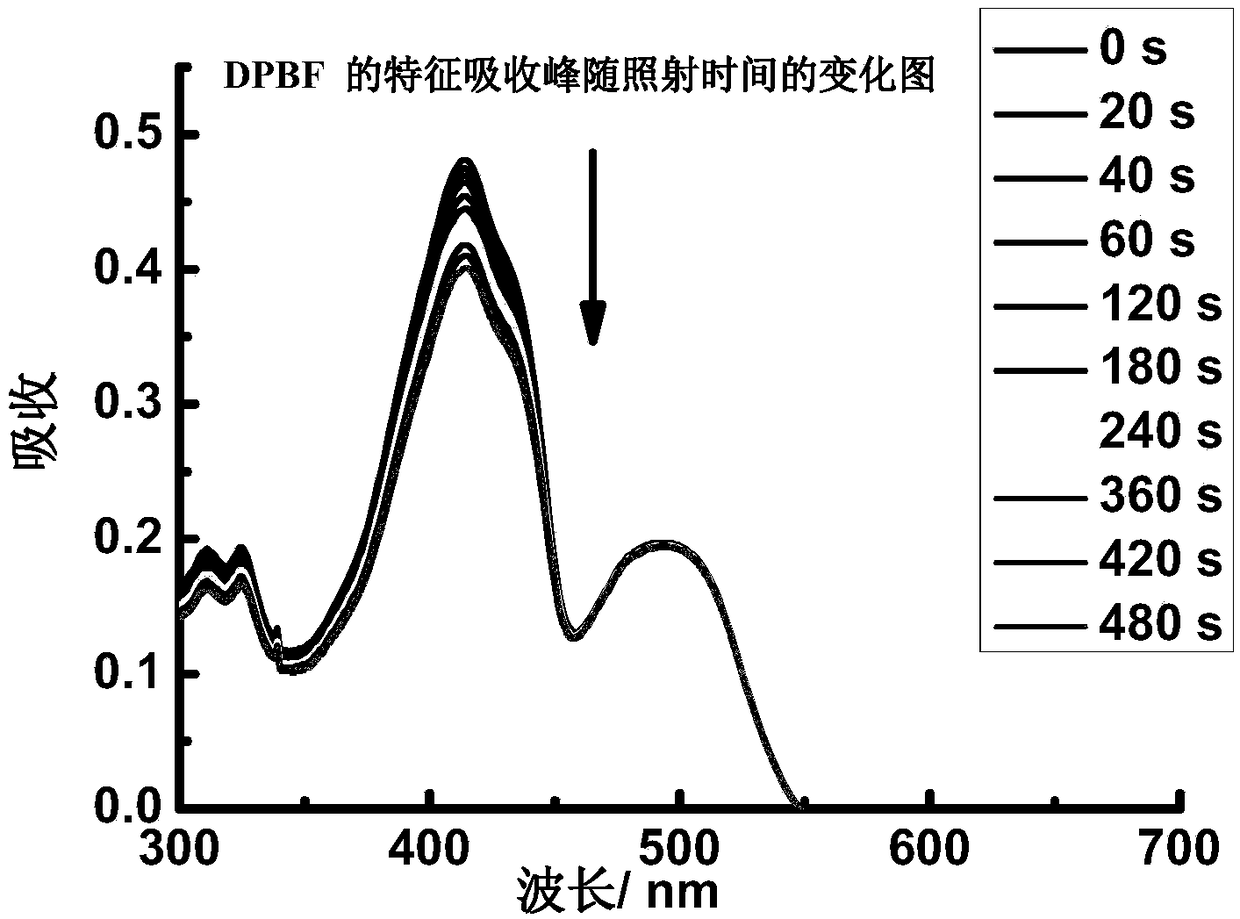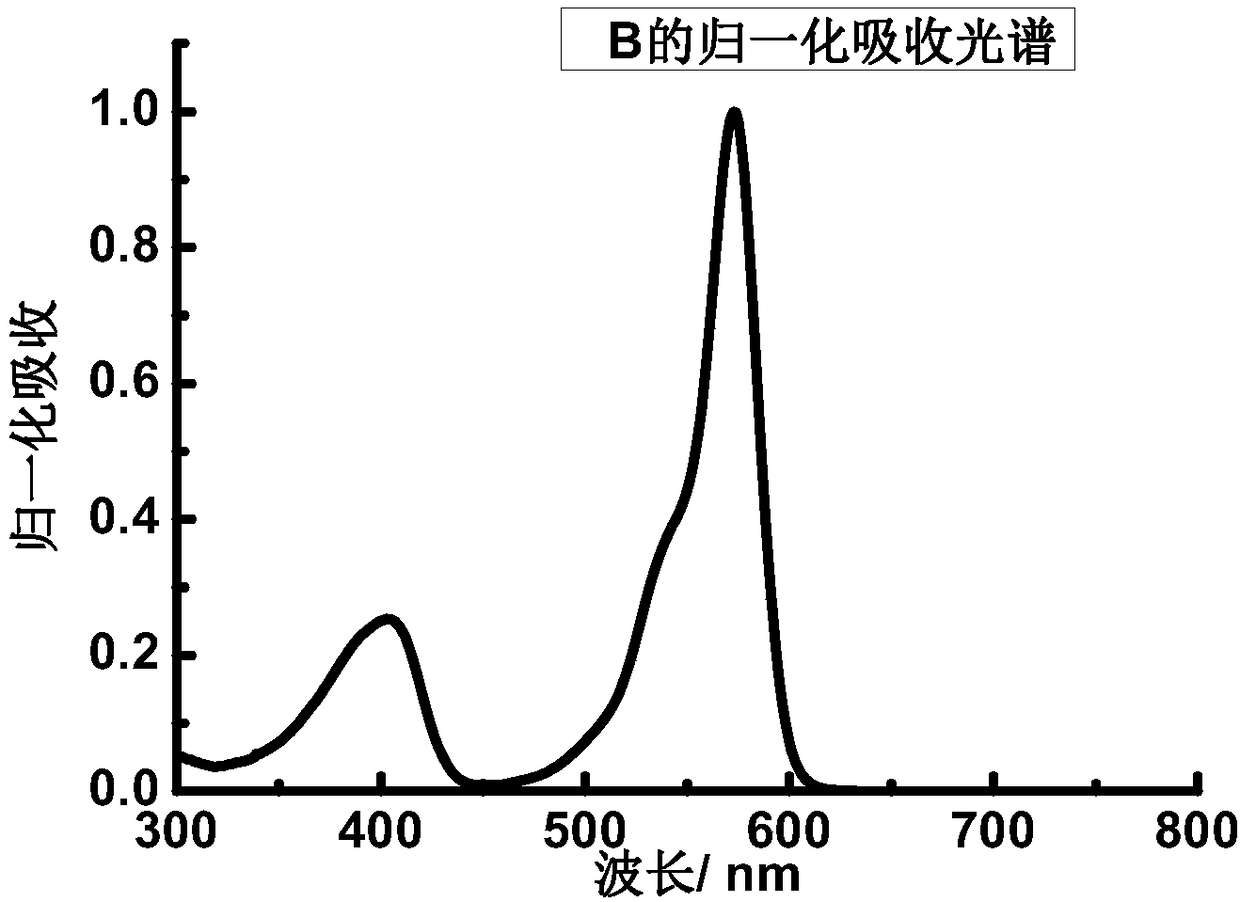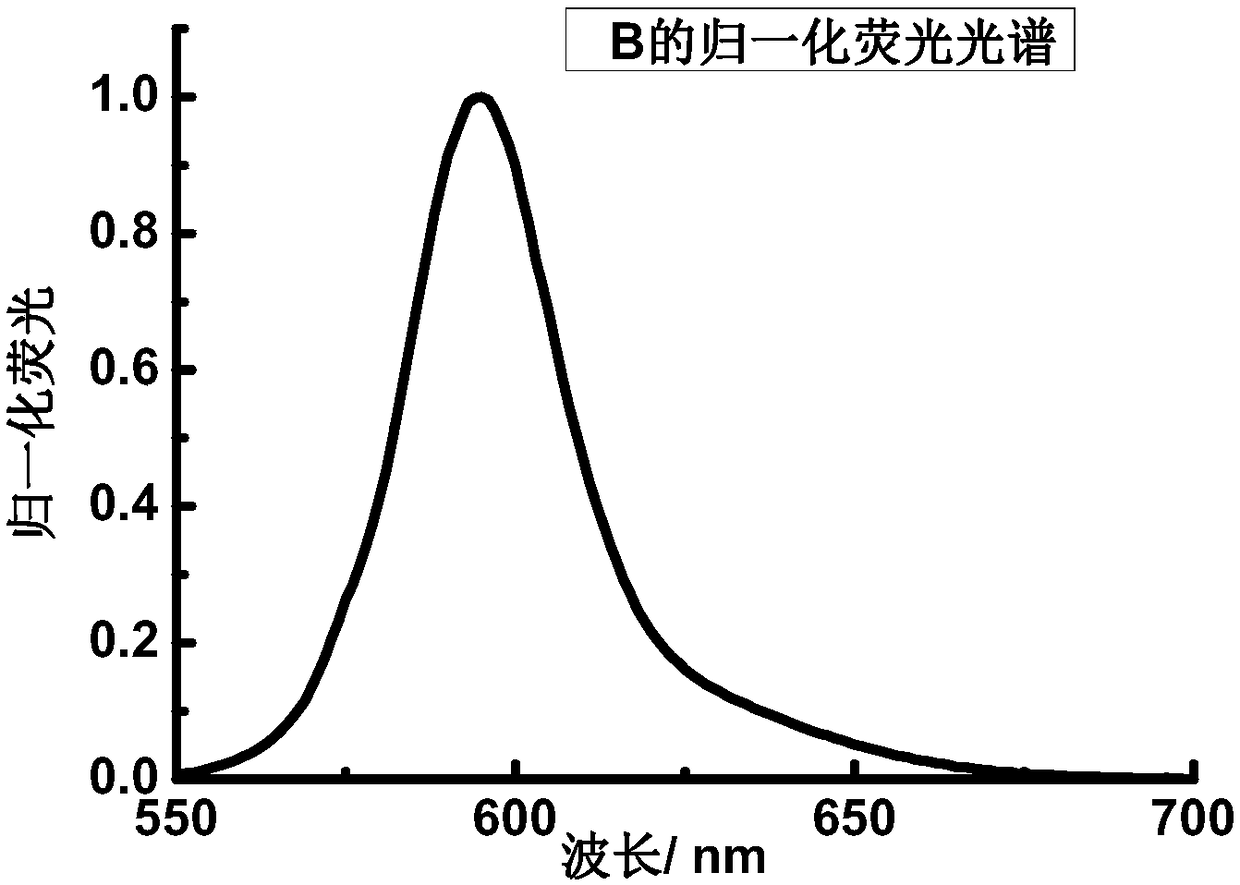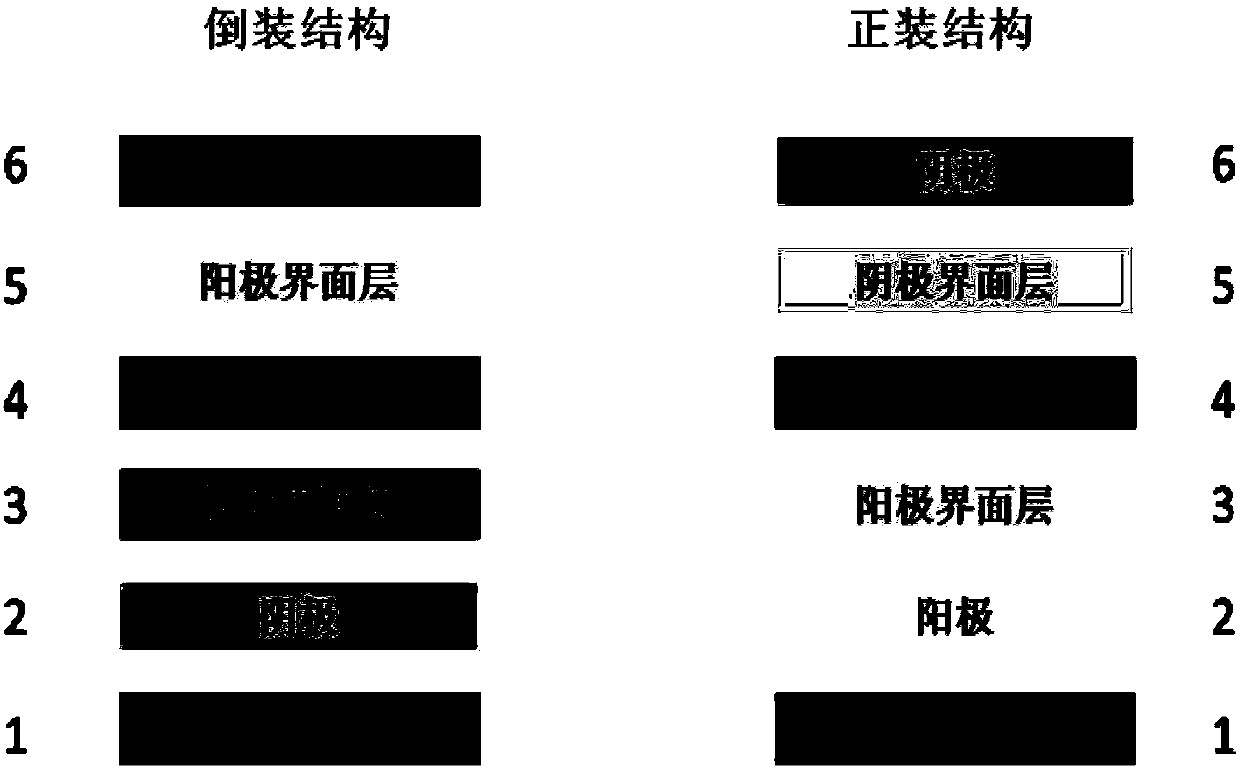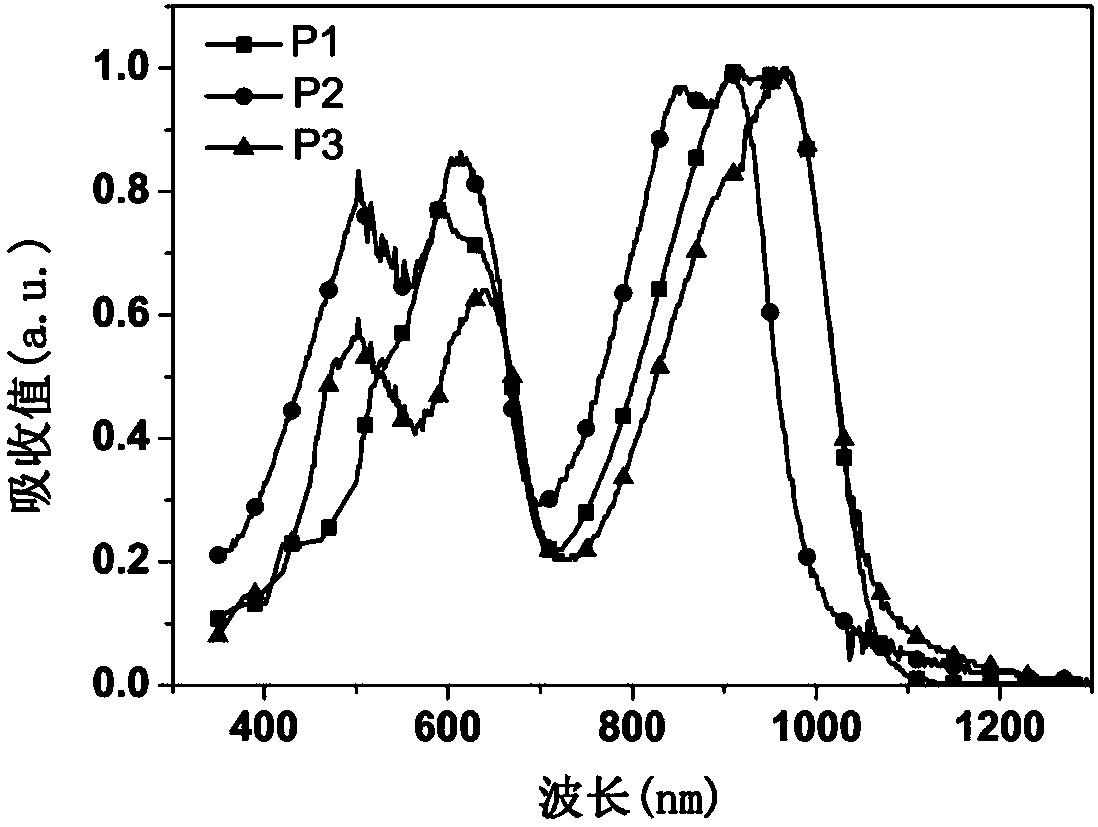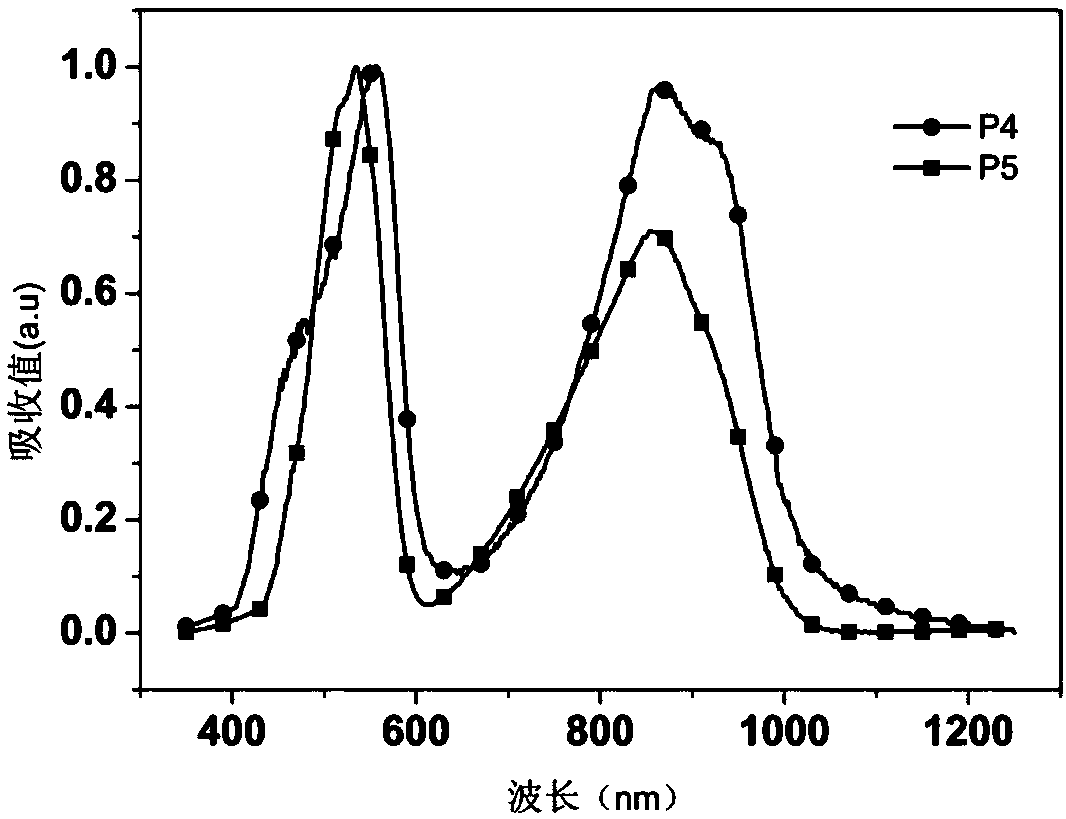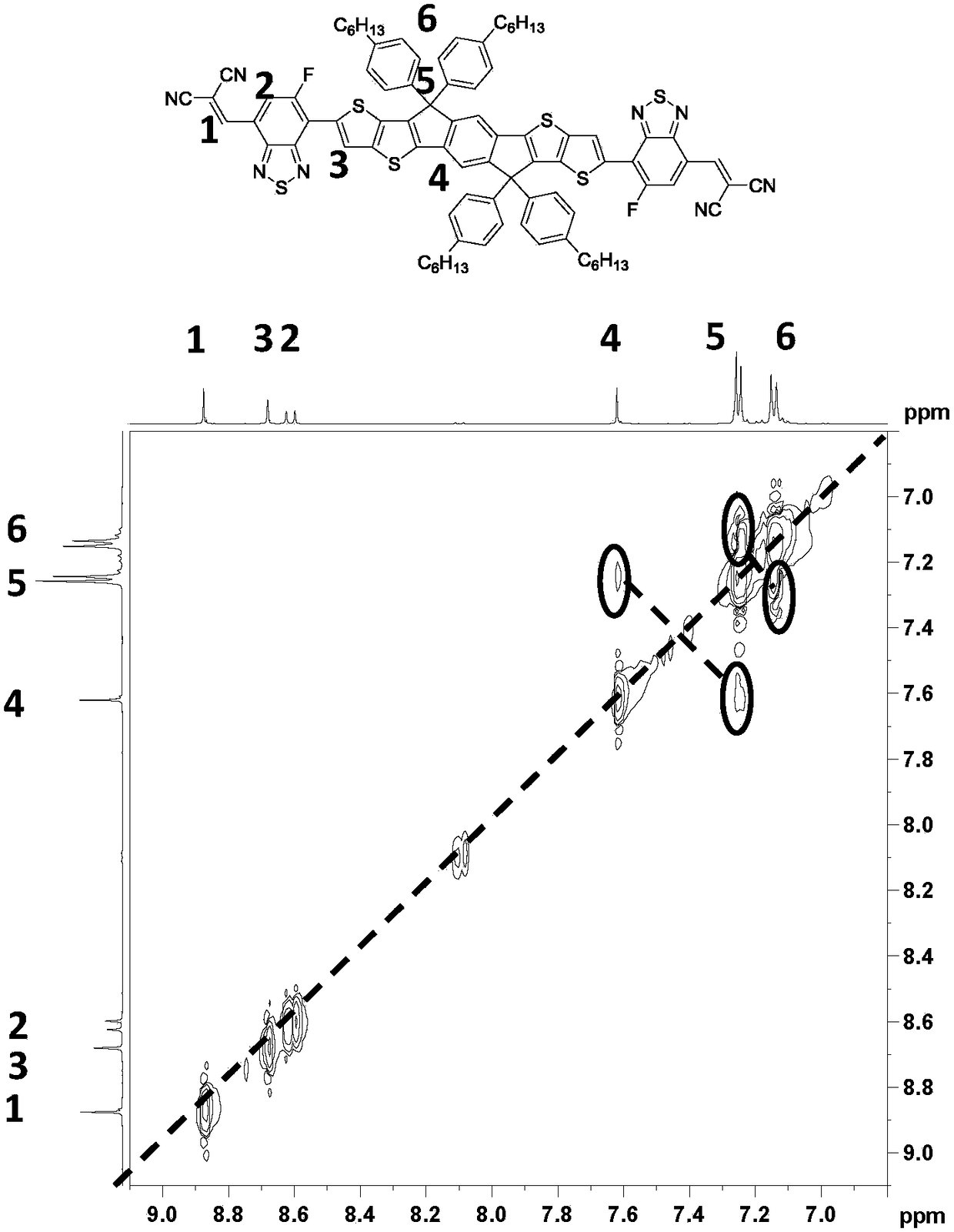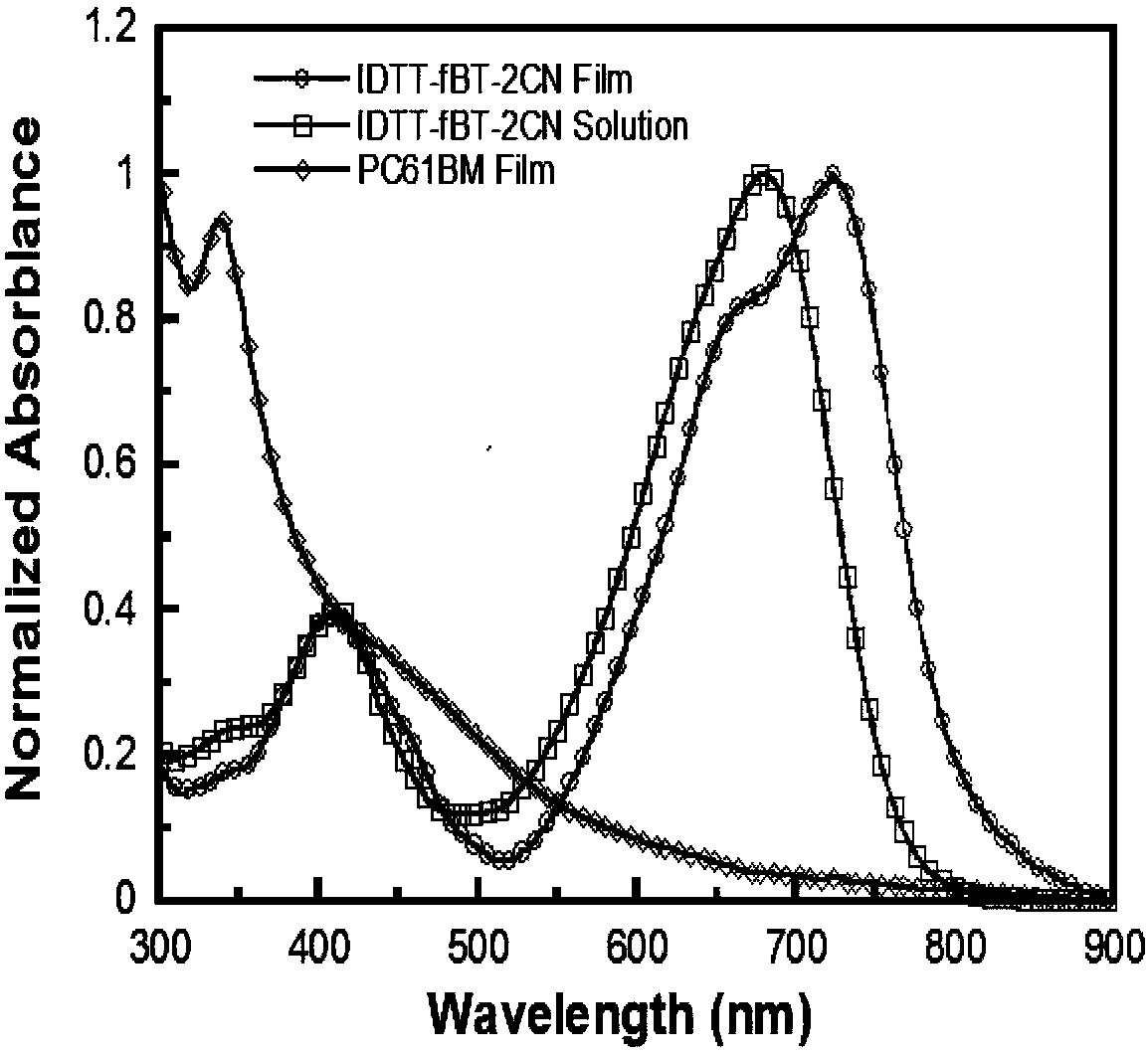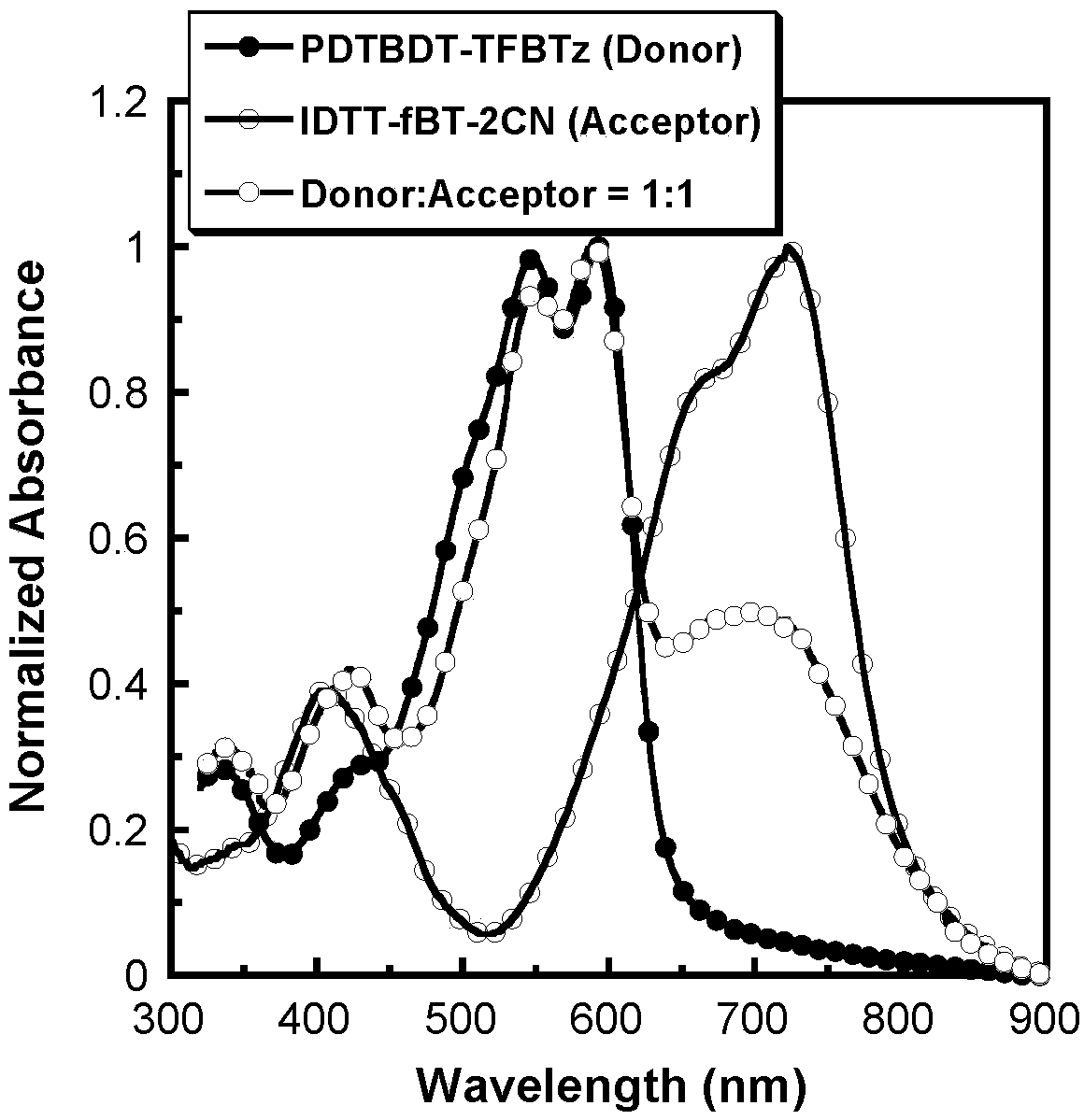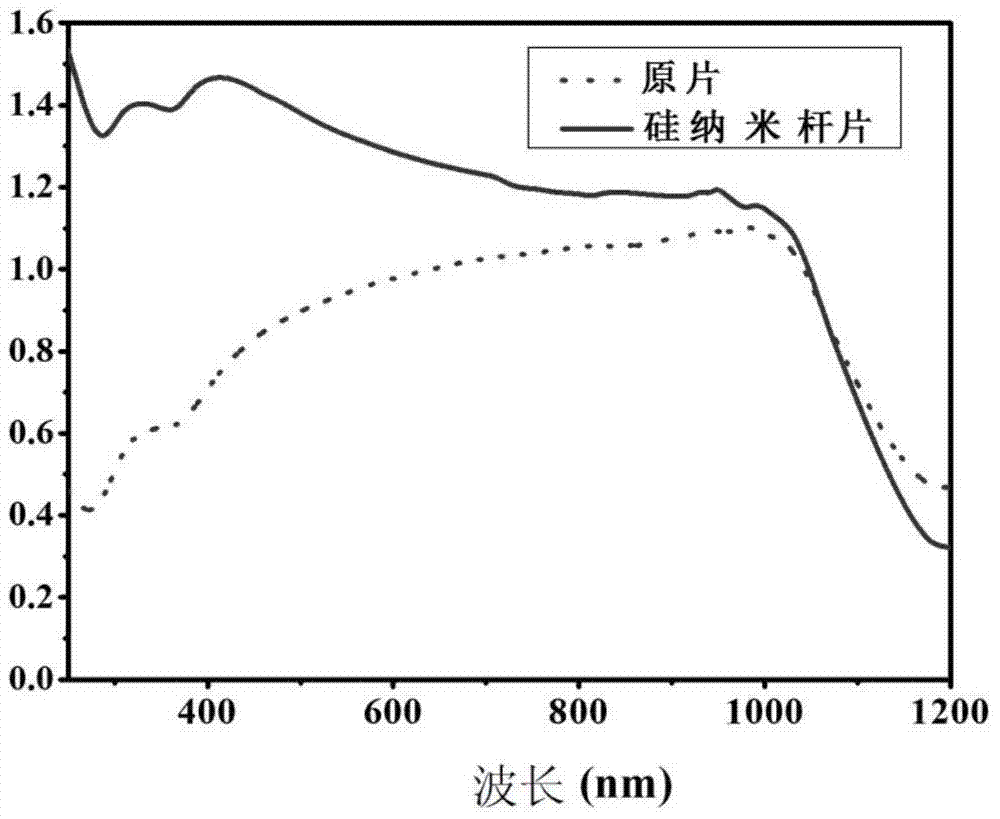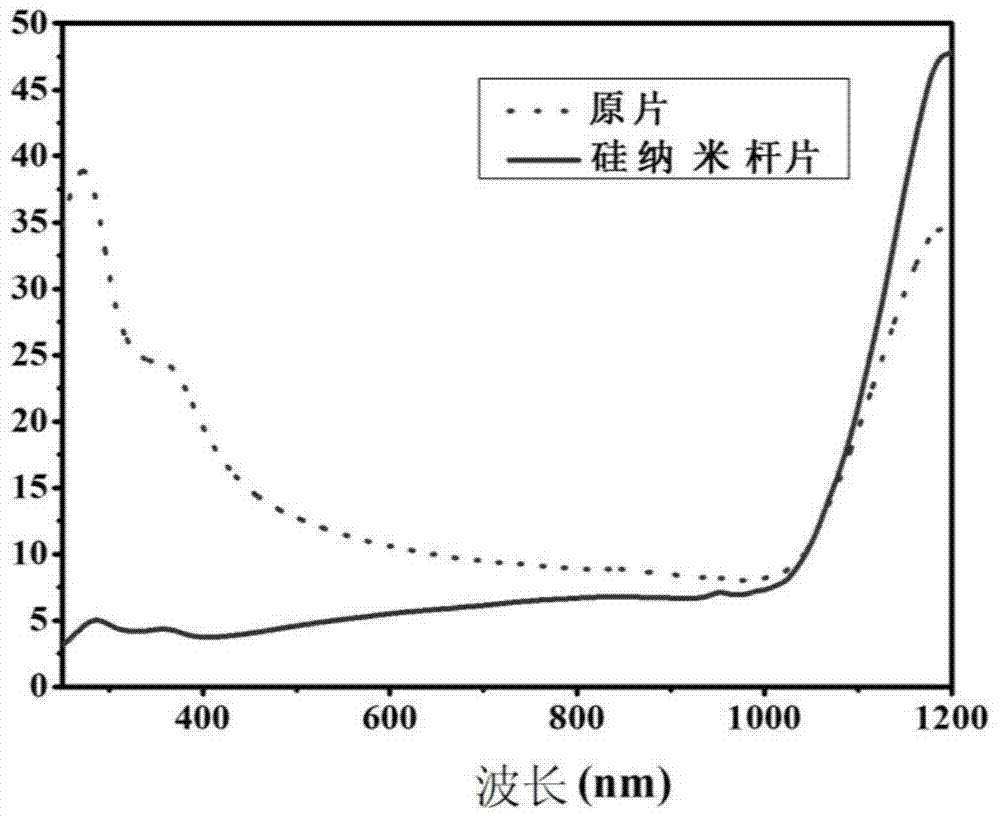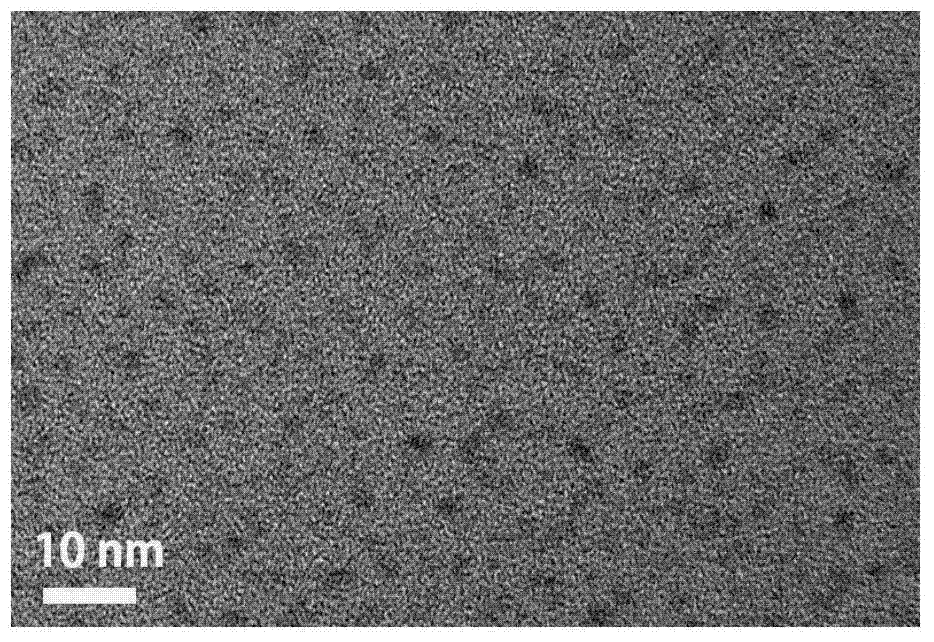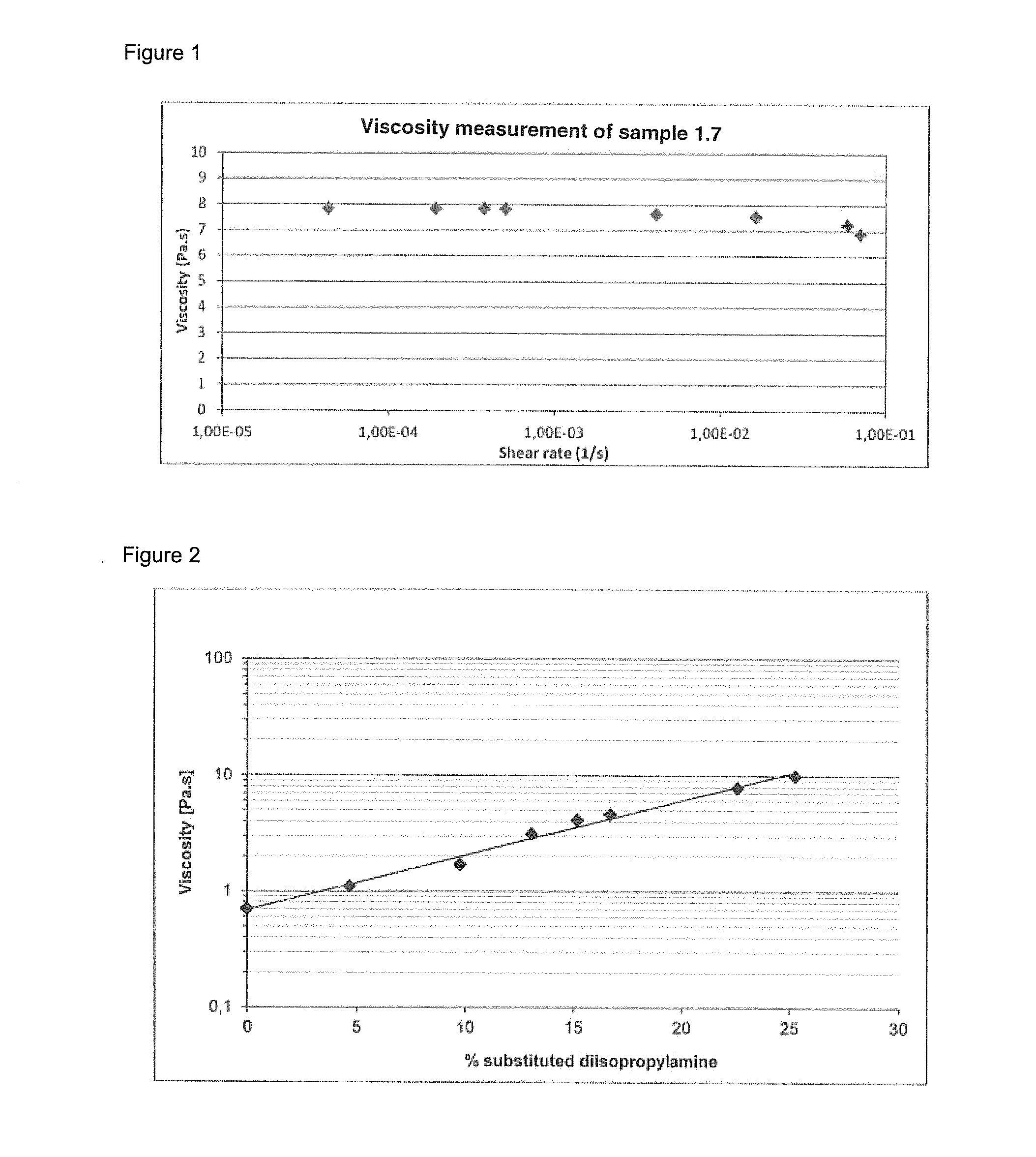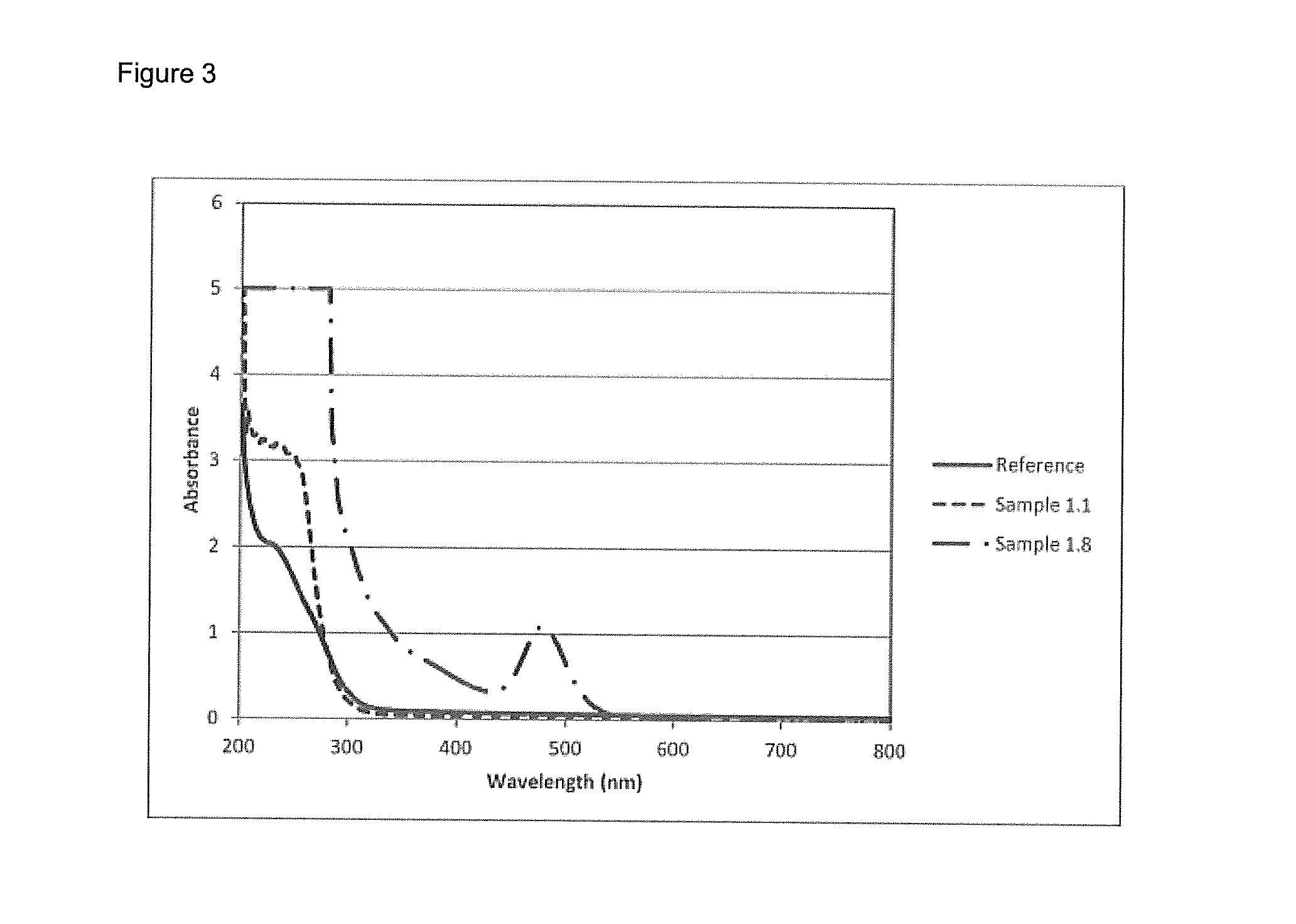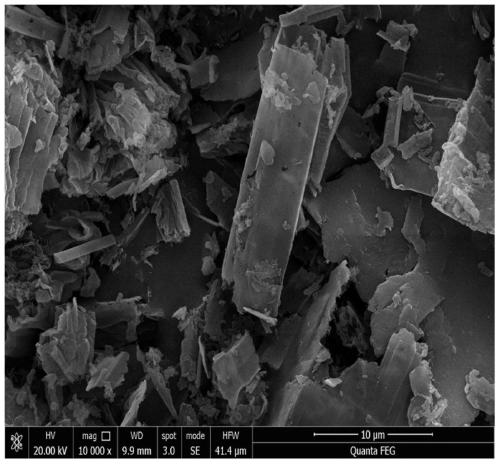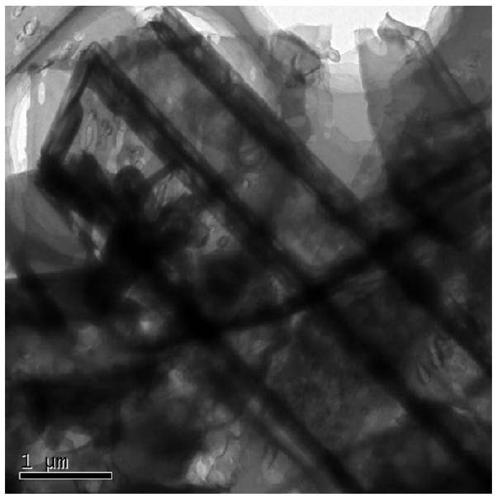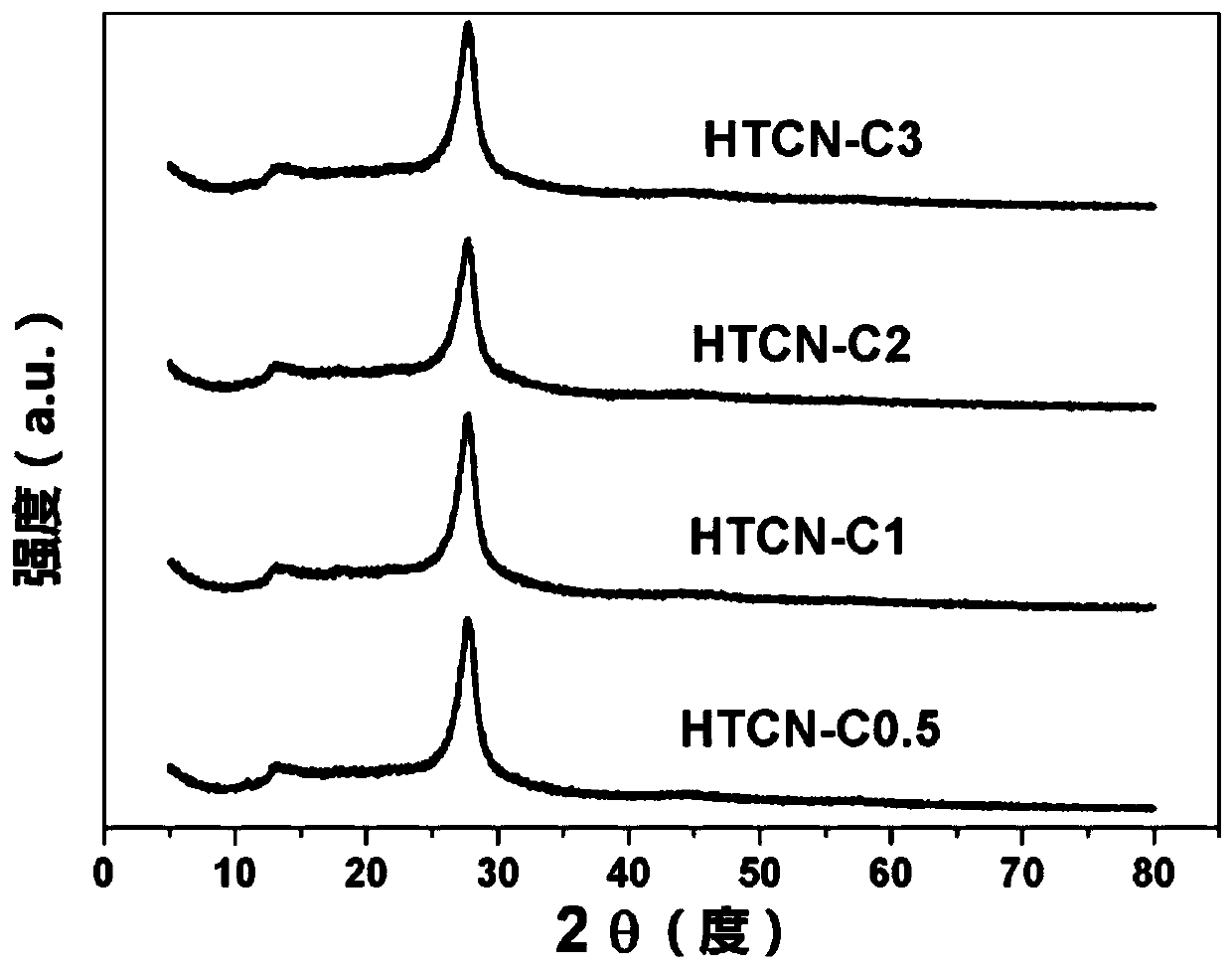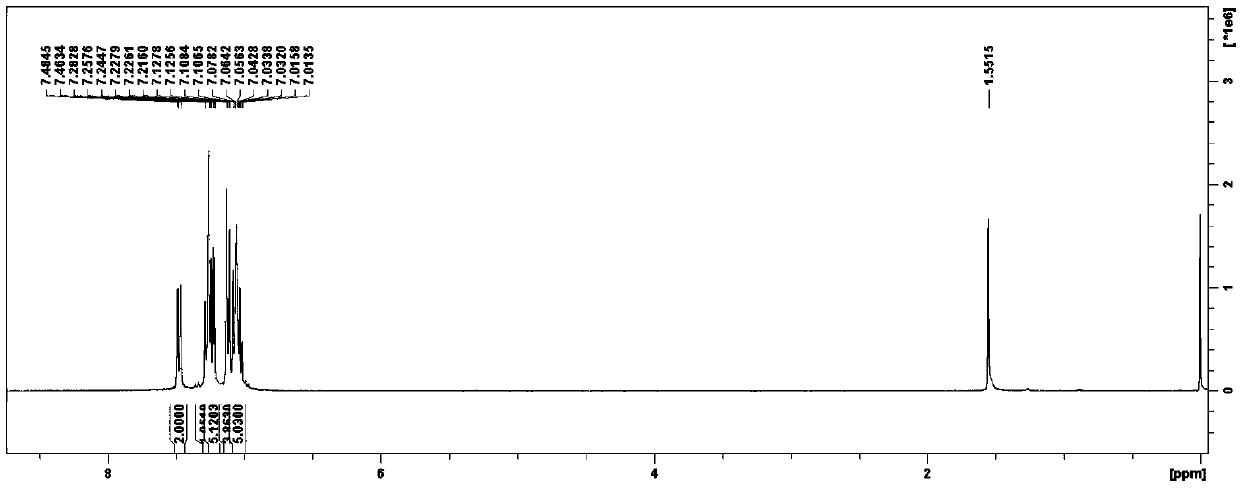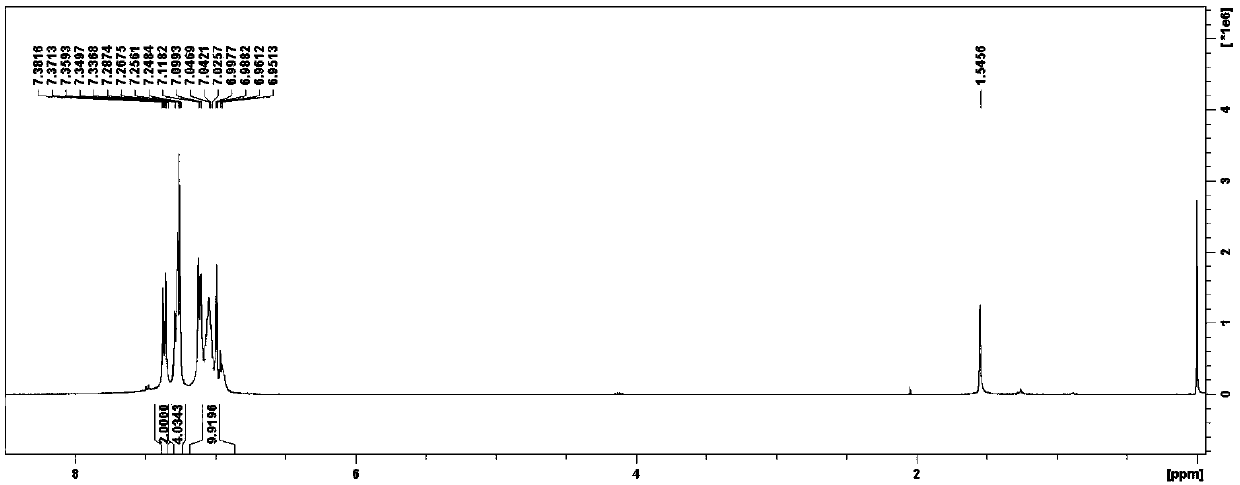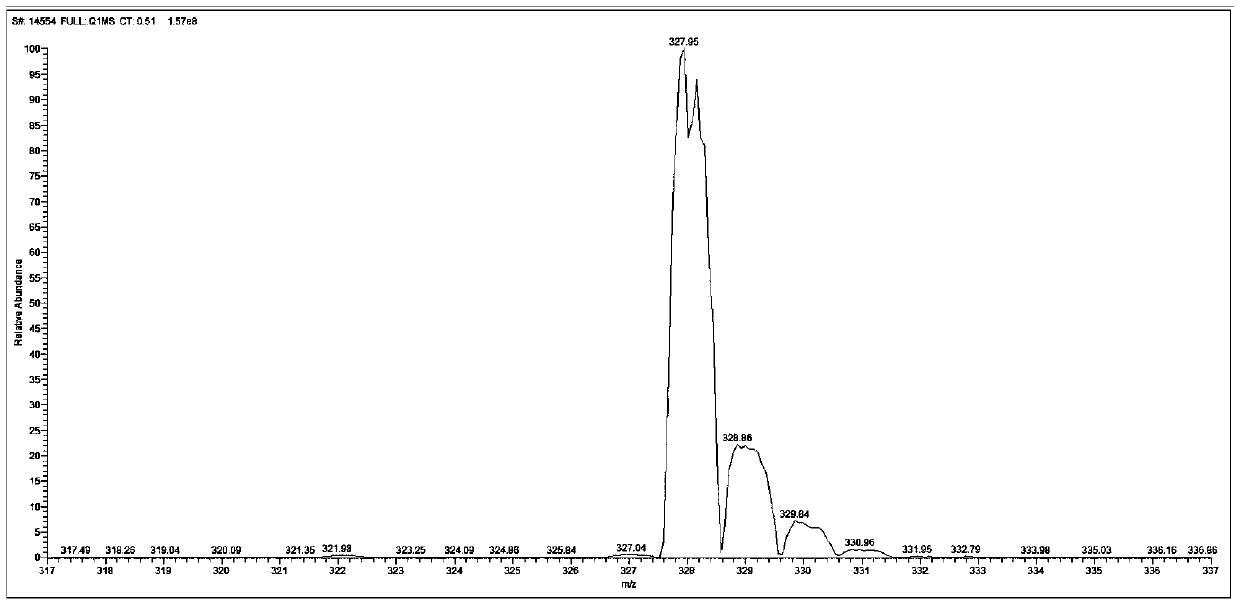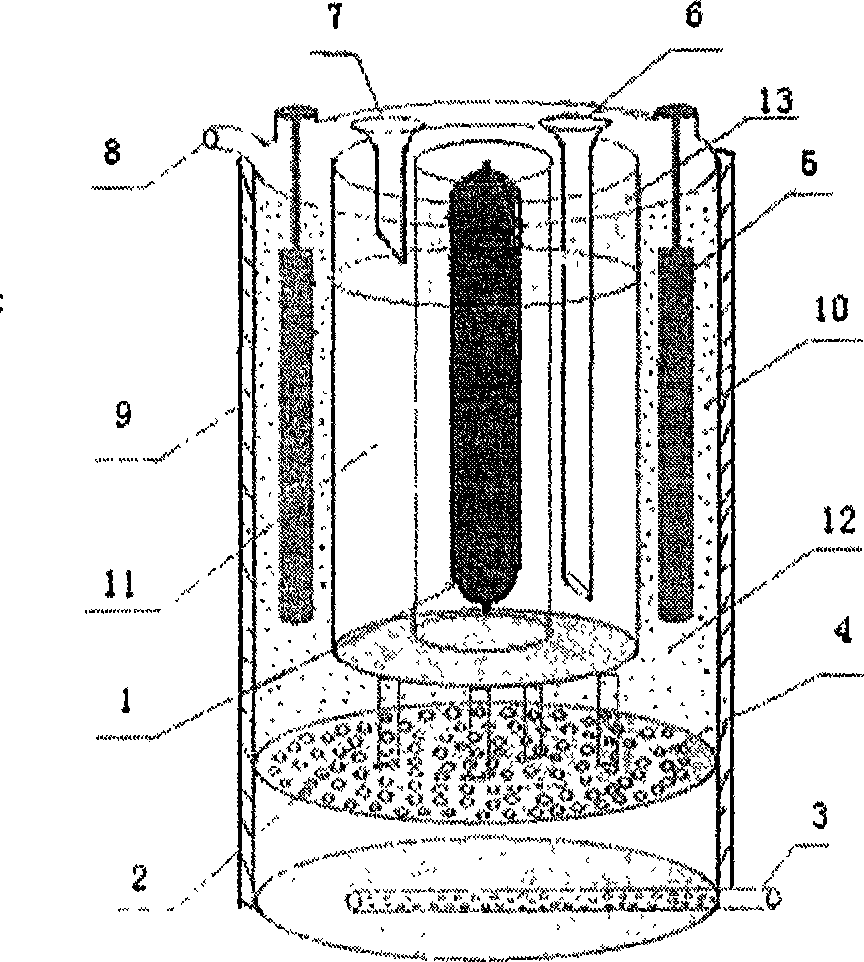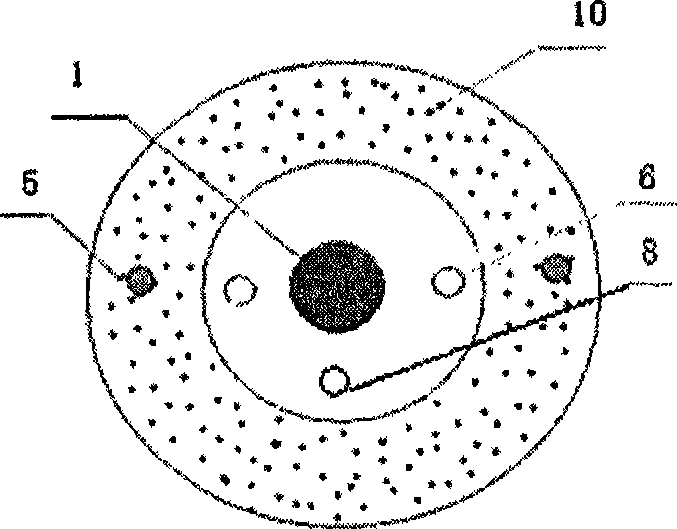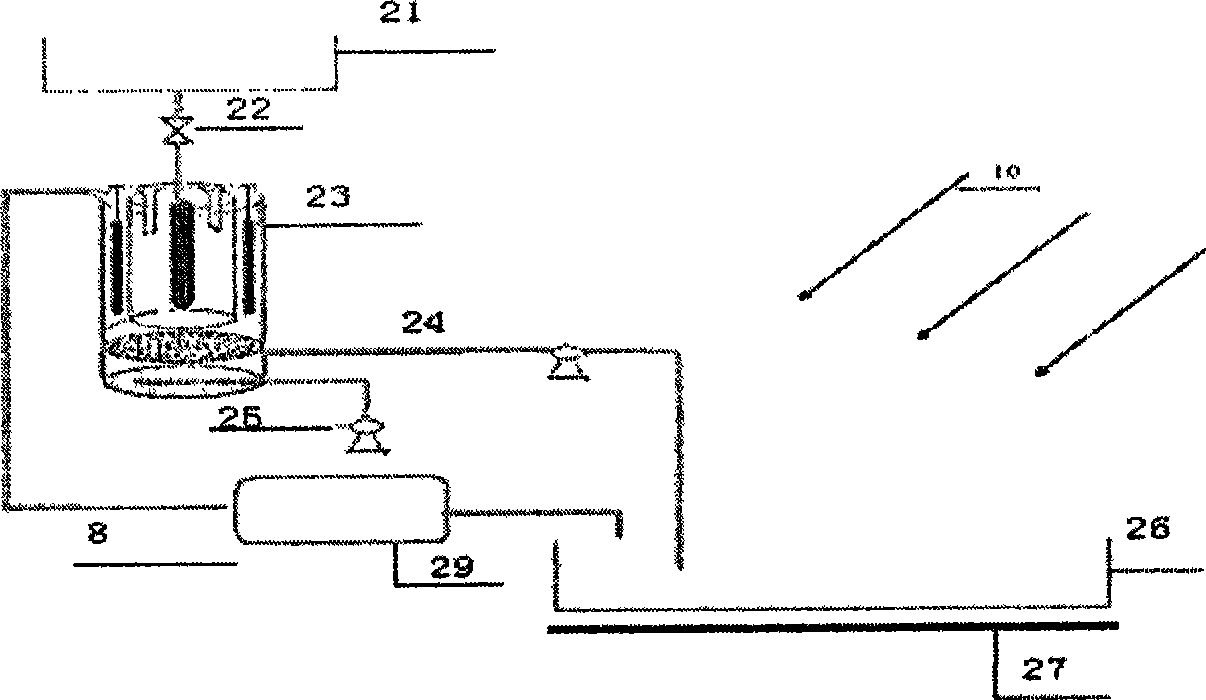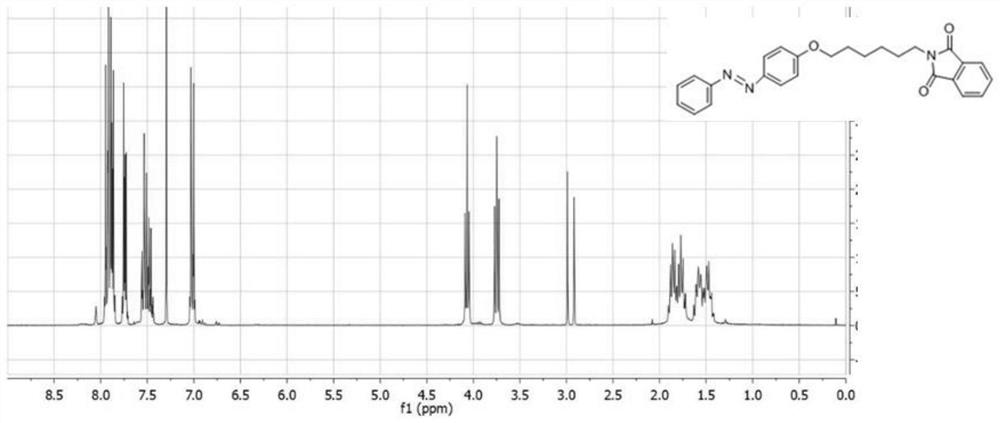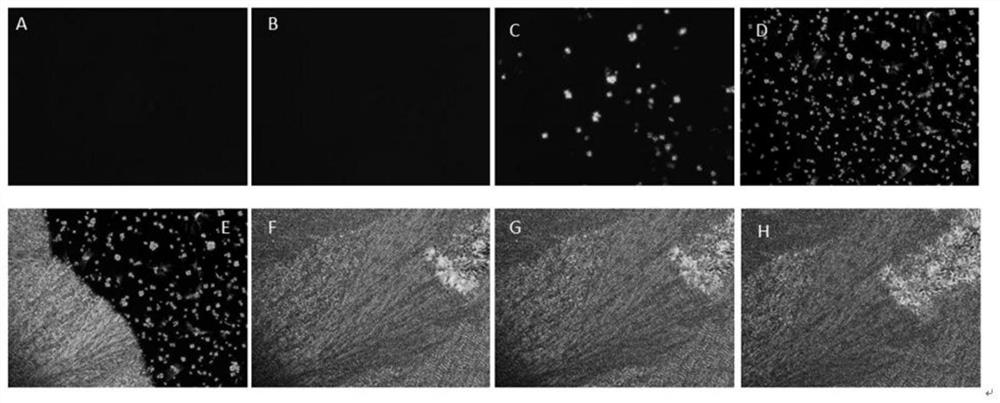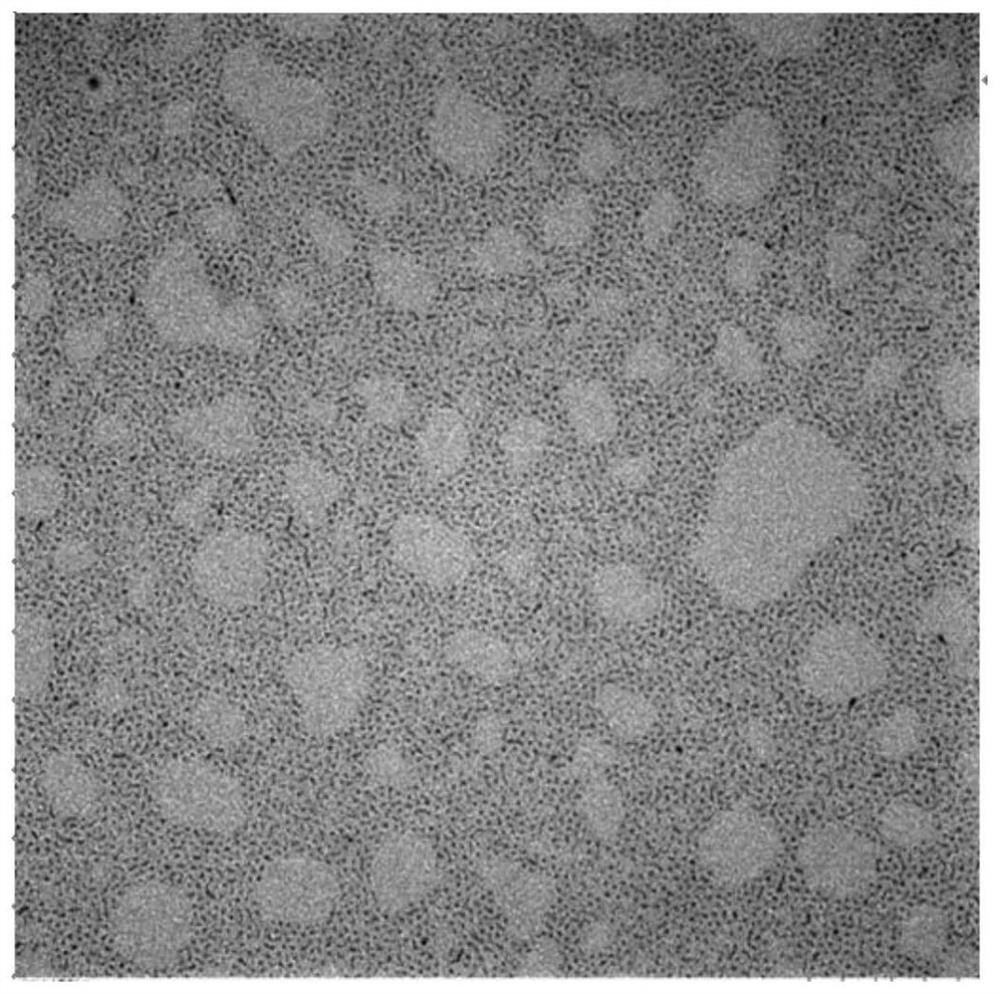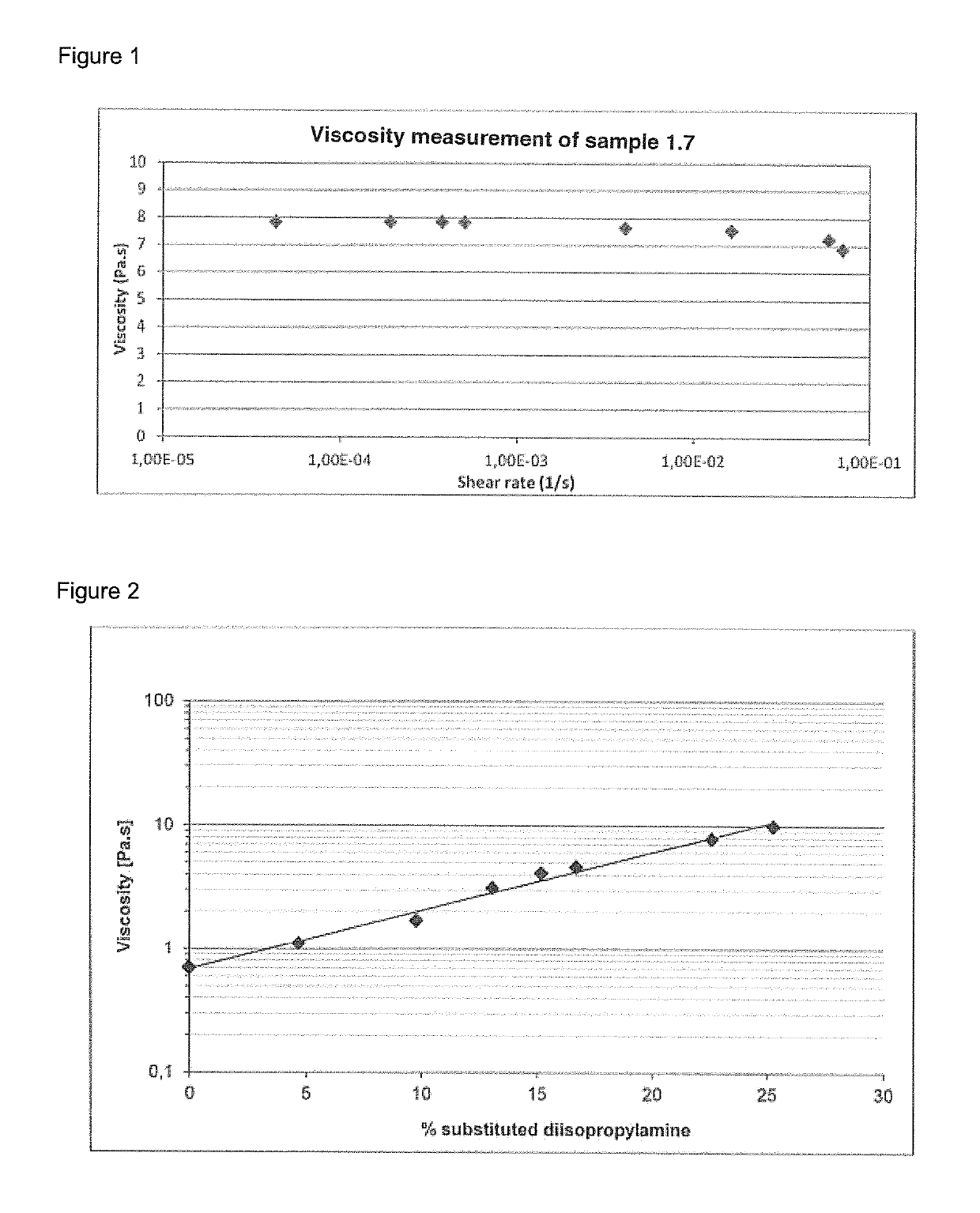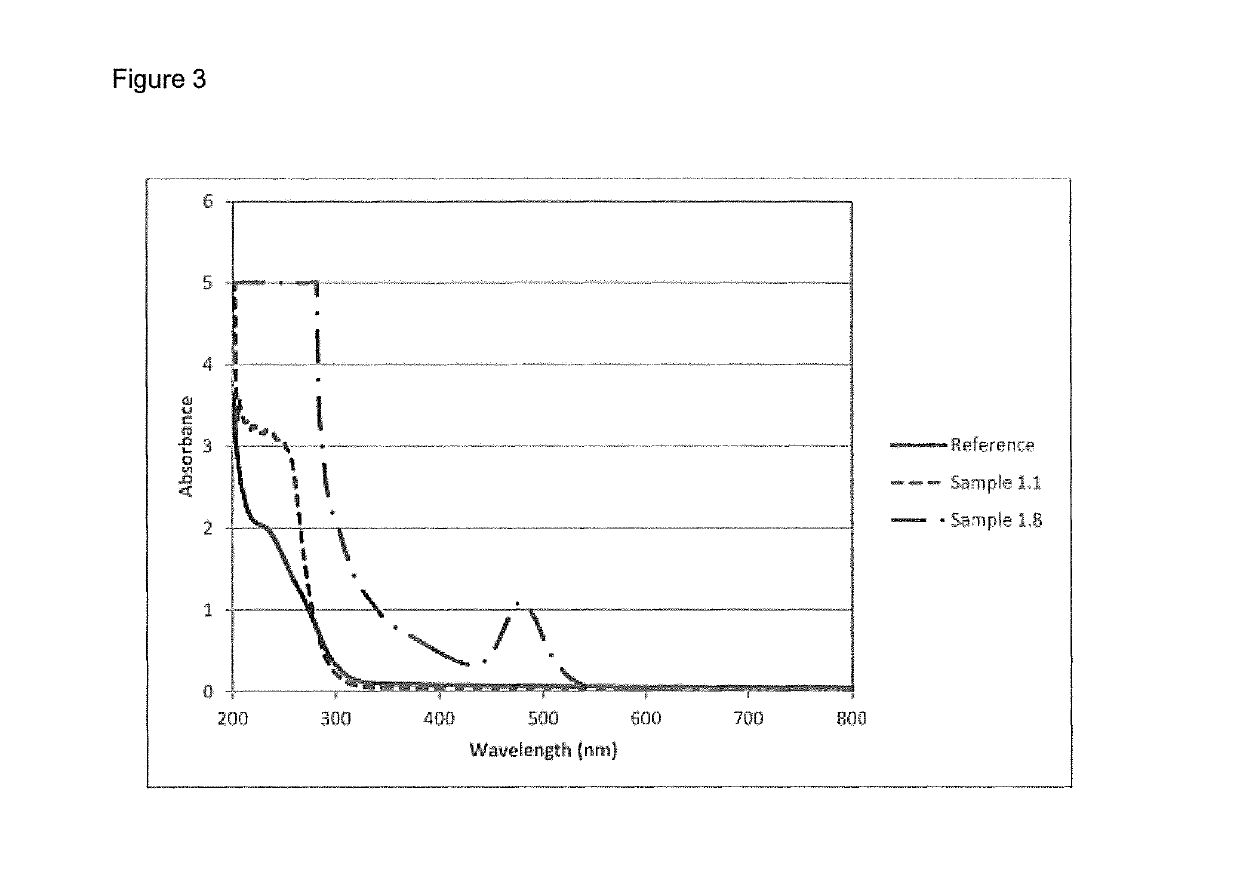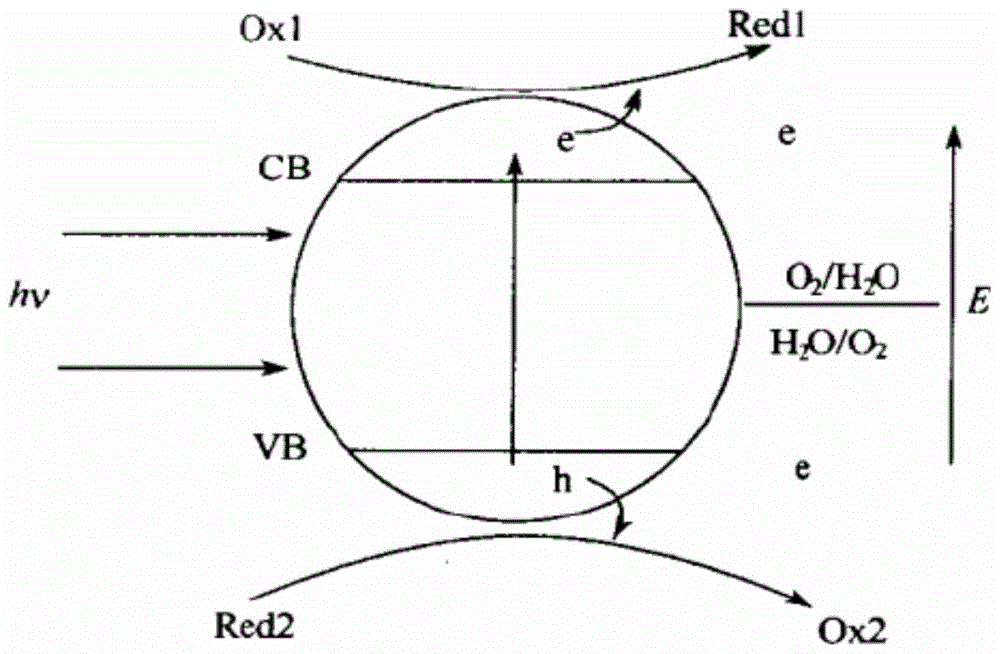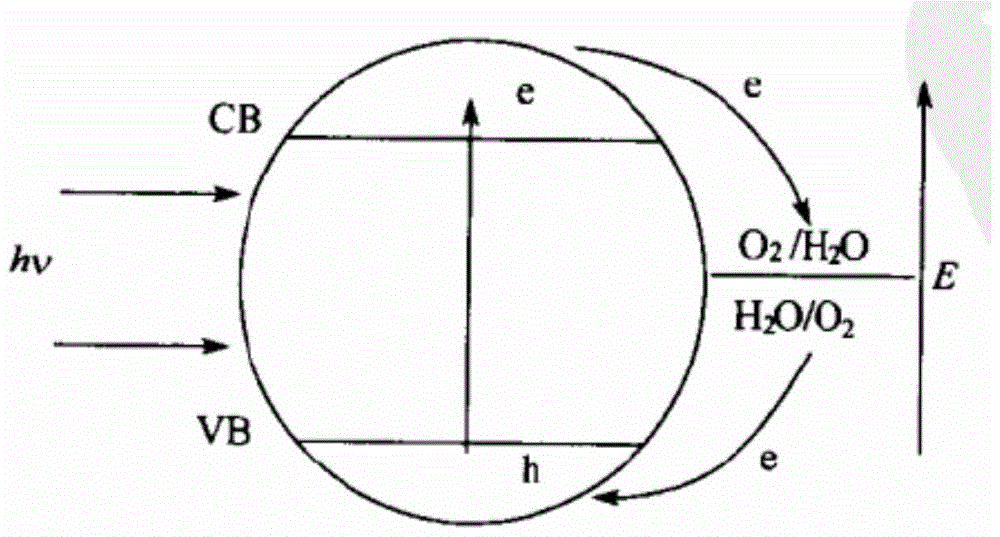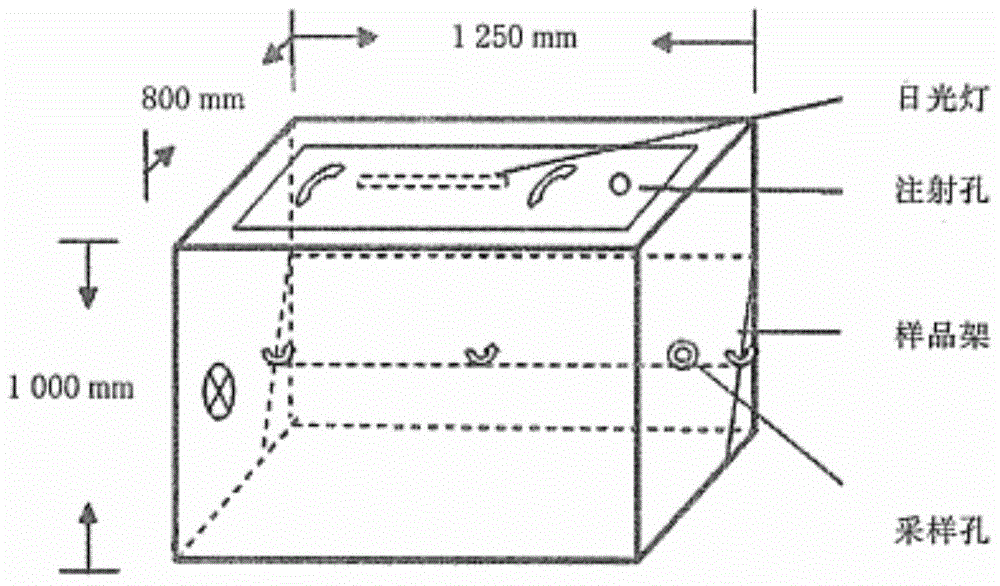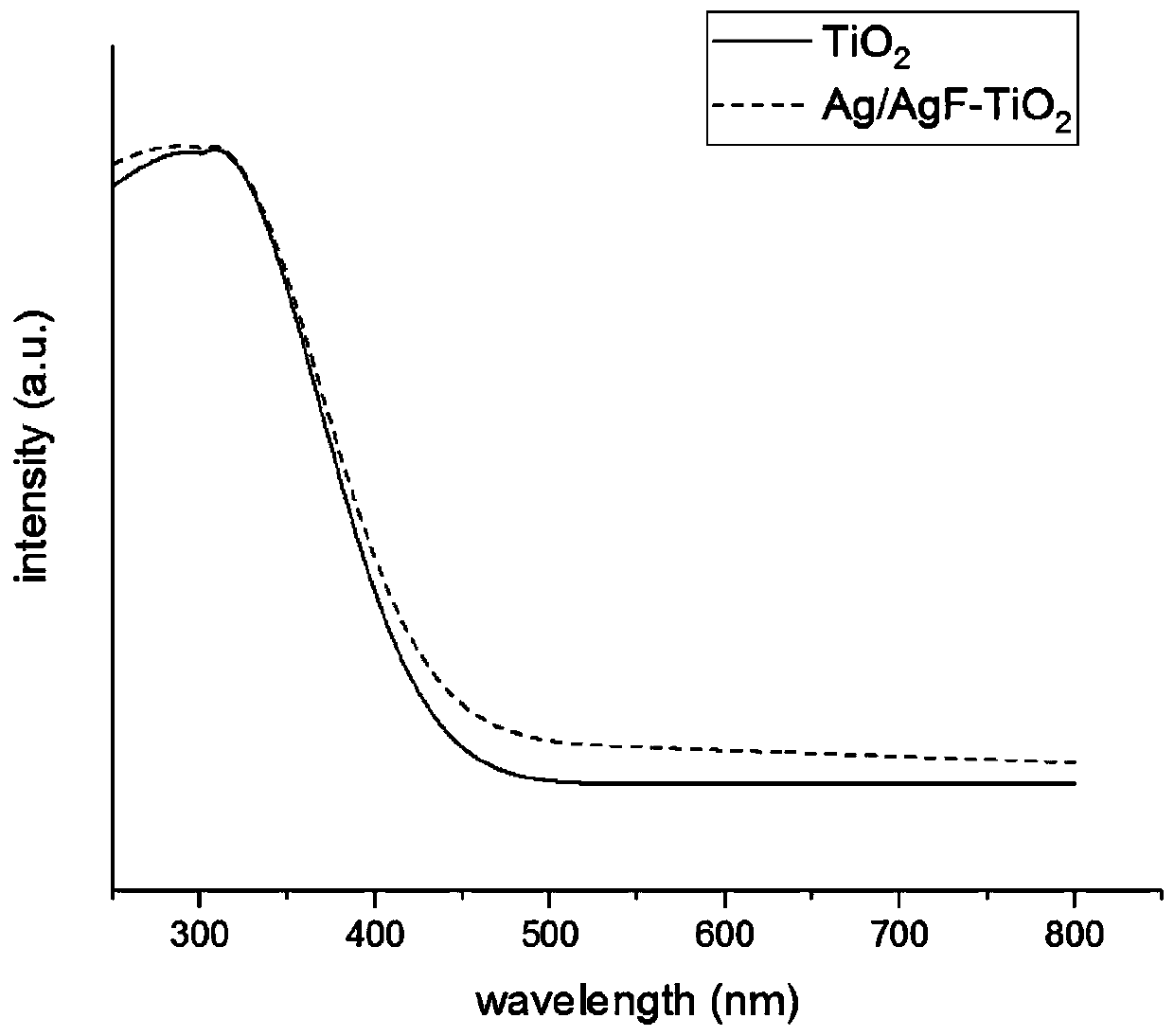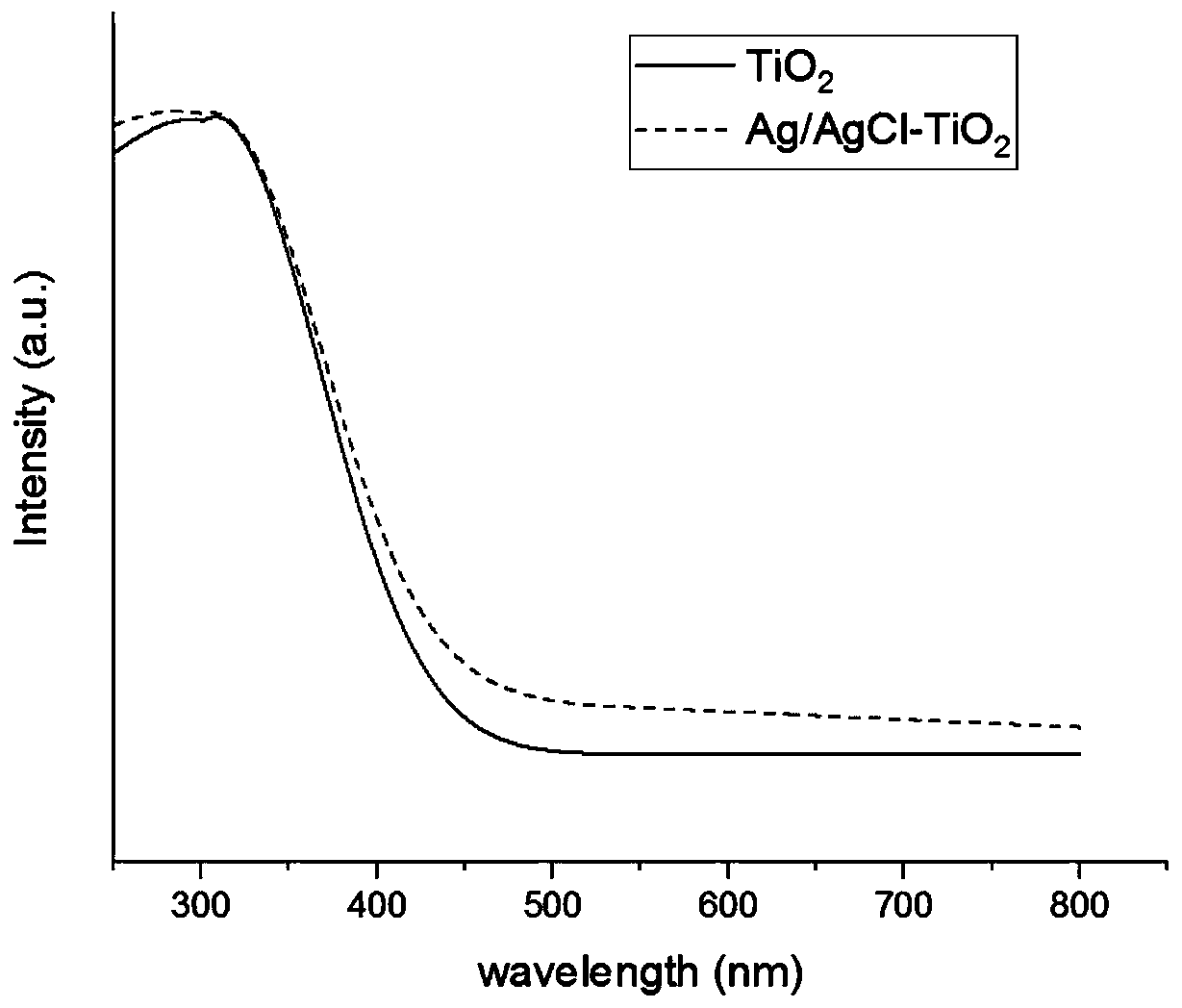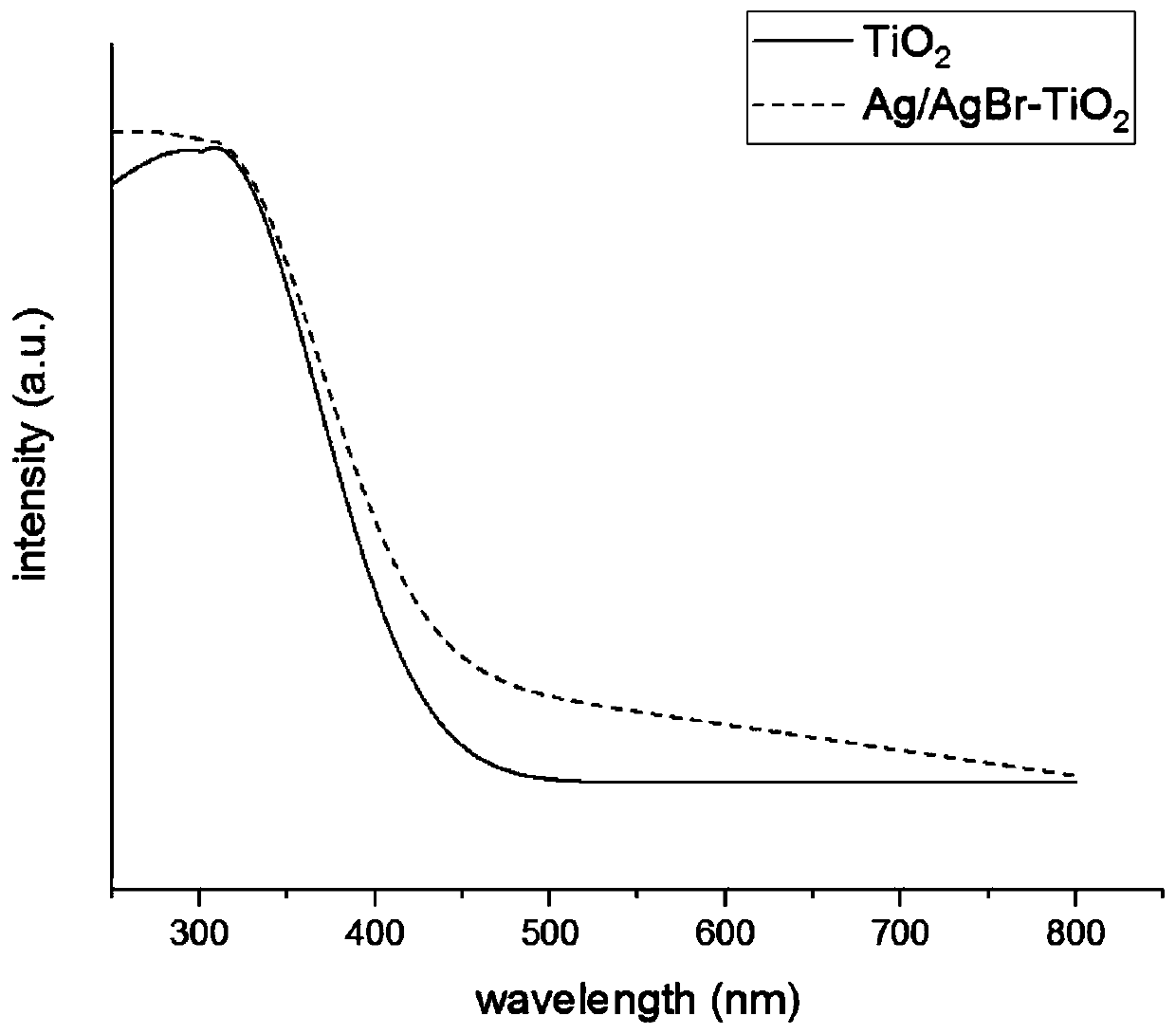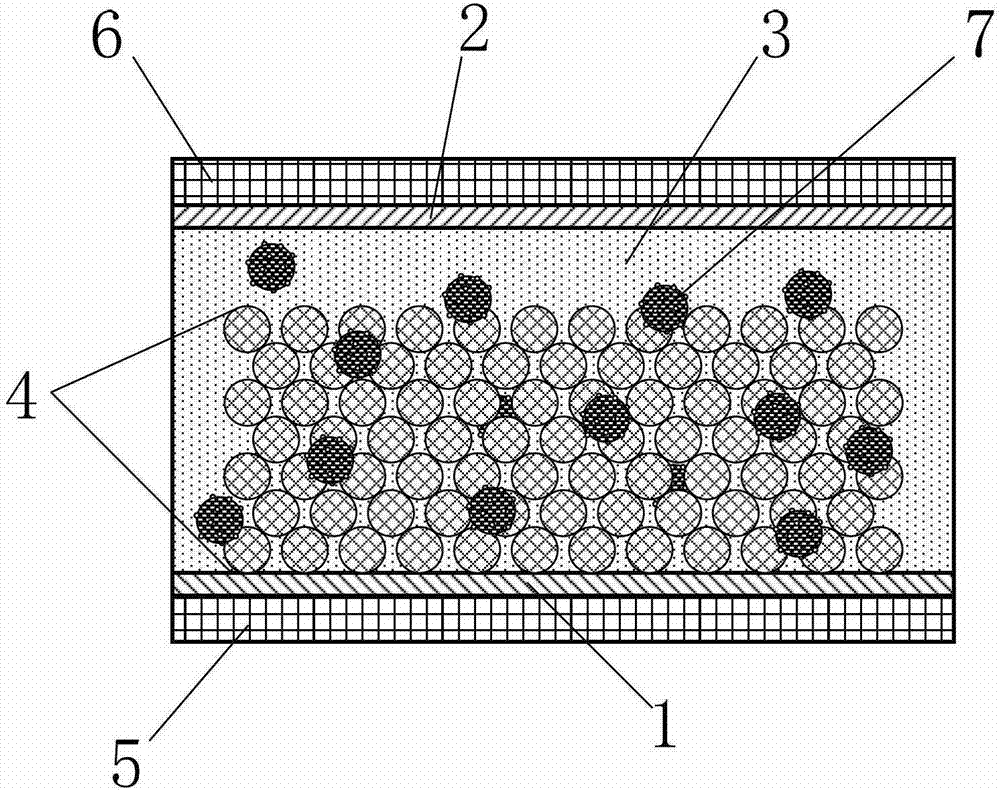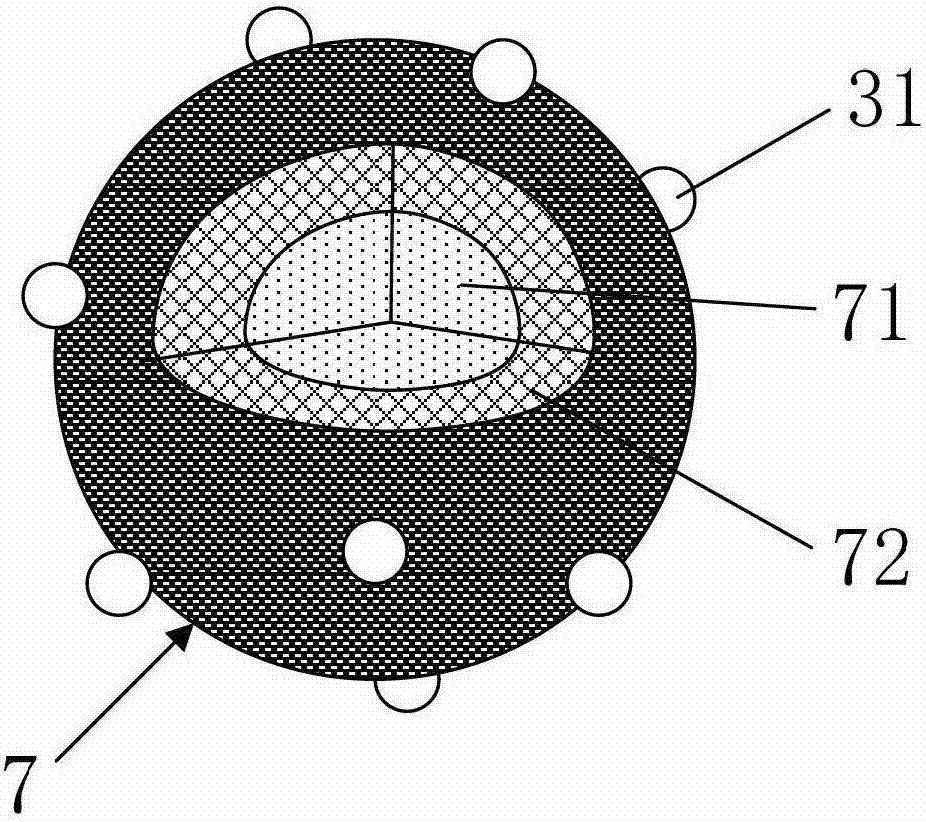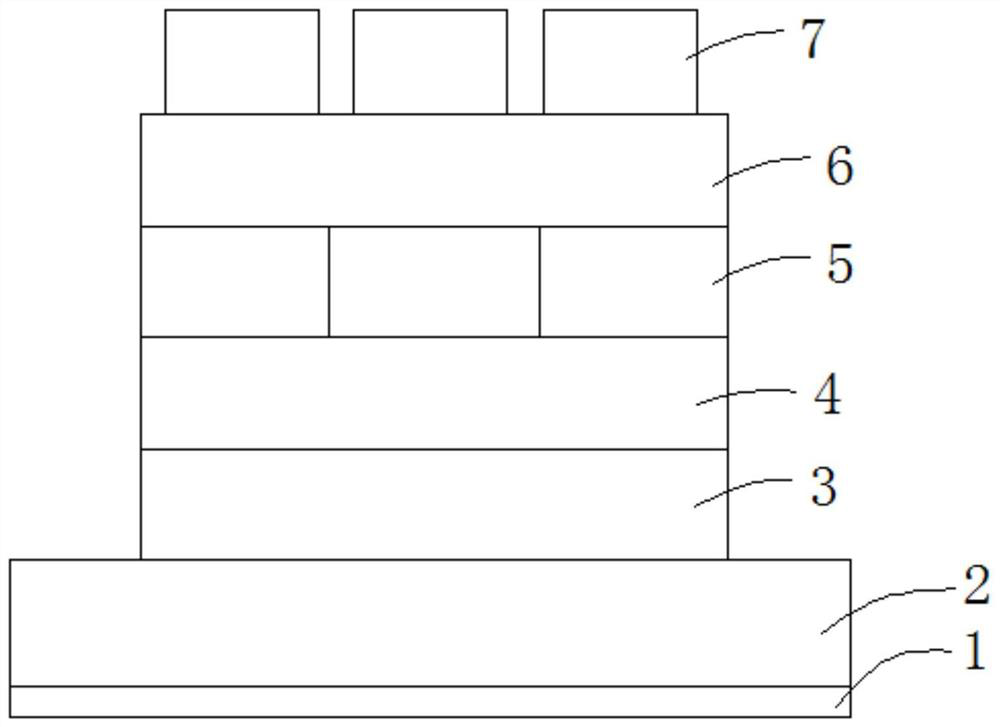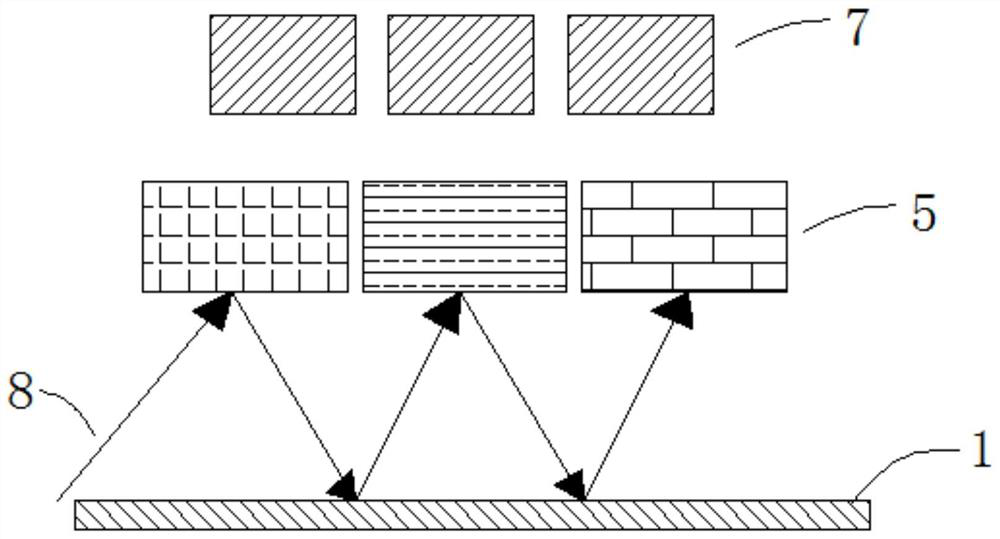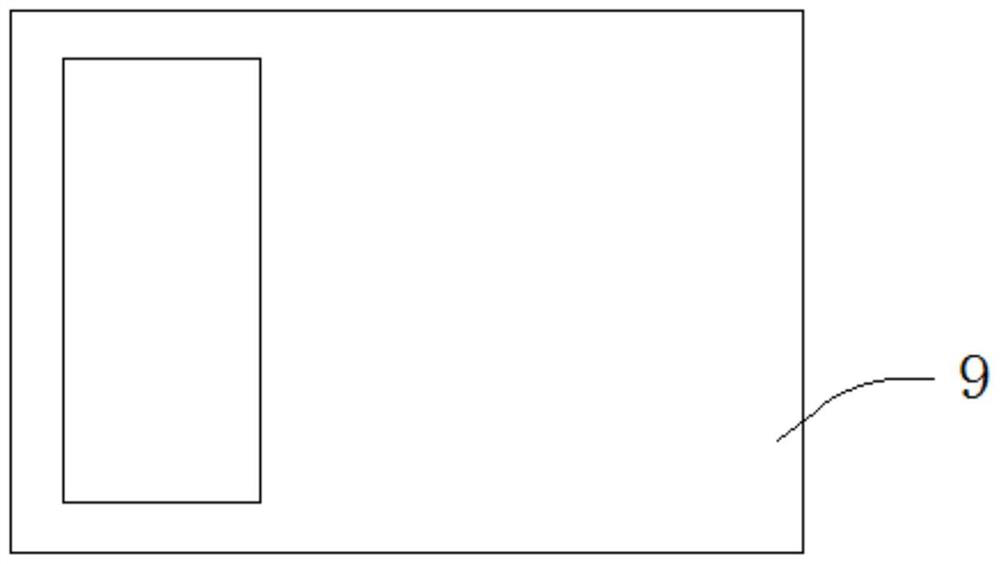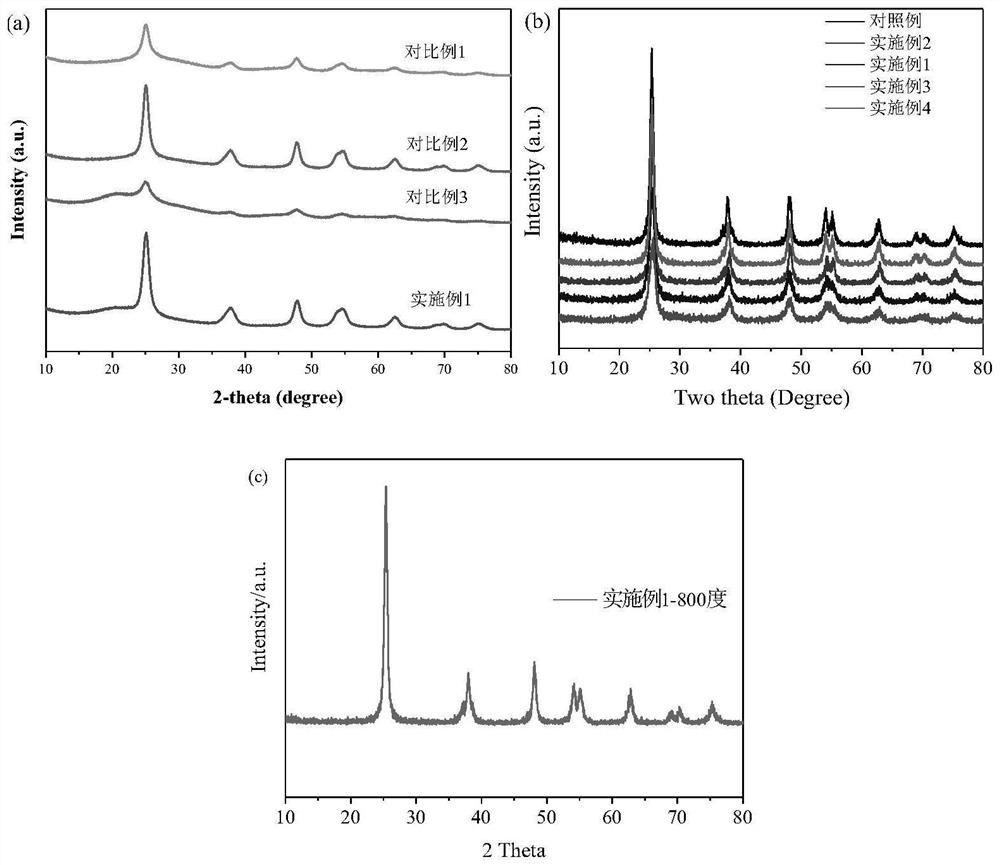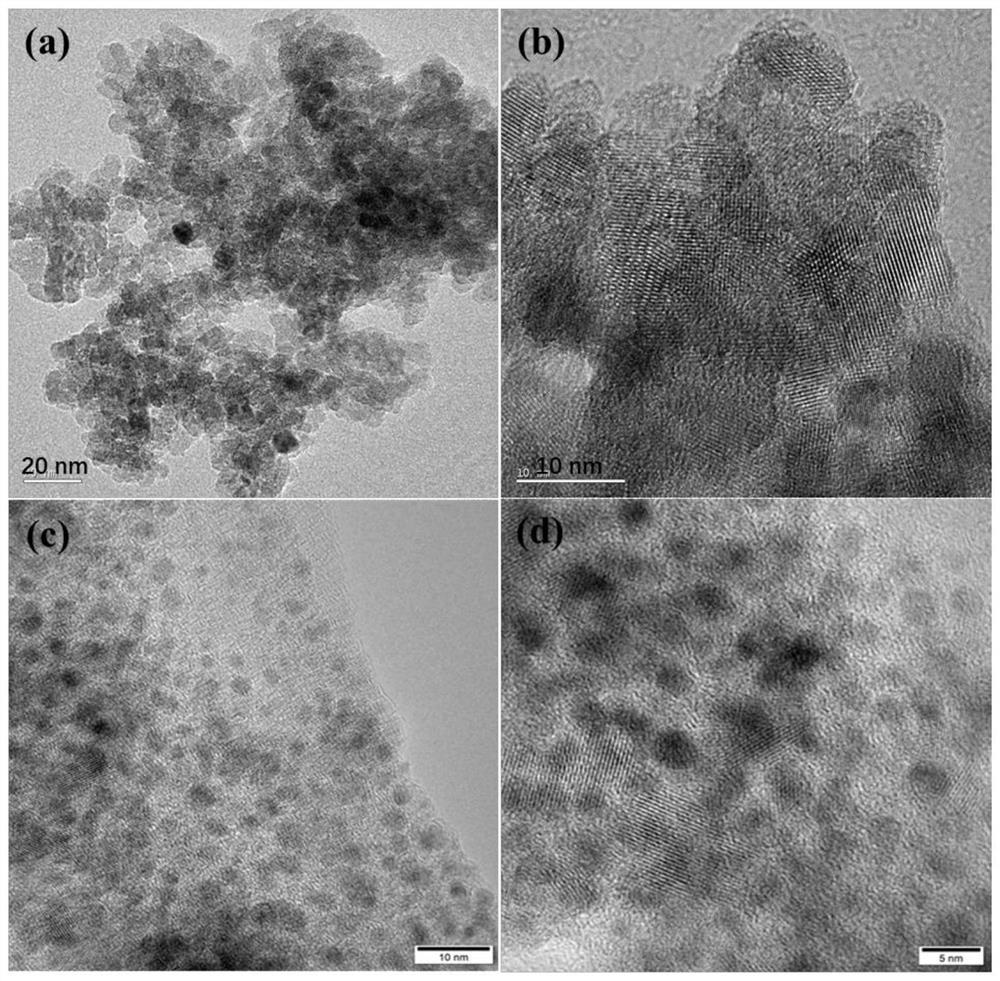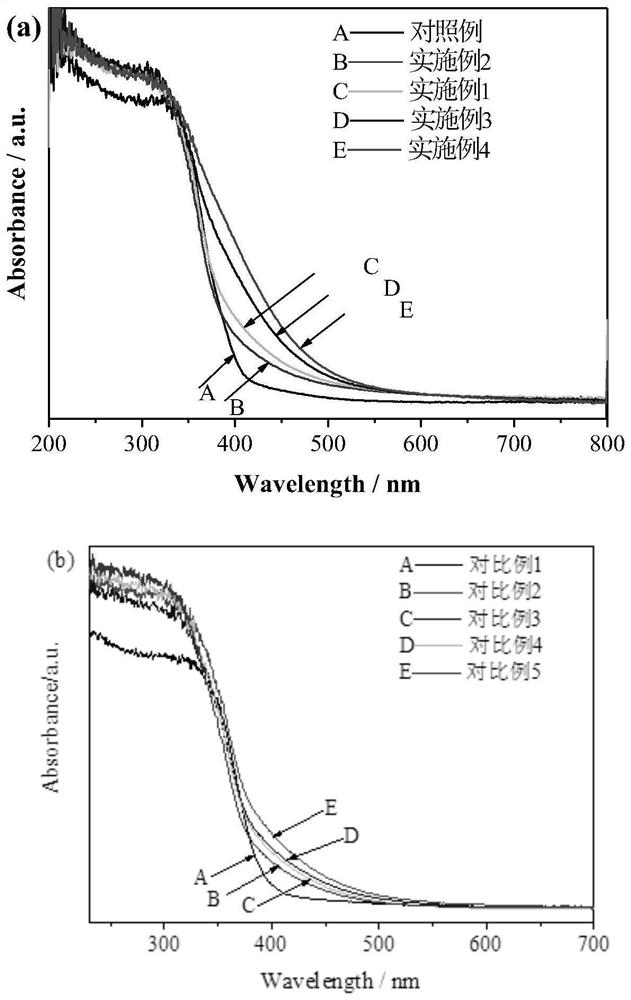Patents
Literature
32results about How to "Broaden the absorption spectrum" patented technology
Efficacy Topic
Property
Owner
Technical Advancement
Application Domain
Technology Topic
Technology Field Word
Patent Country/Region
Patent Type
Patent Status
Application Year
Inventor
Synthesis technology of magnet carried photocatalyst composite particle, sewage purification method and device
InactiveCN1785525AAchieve the purpose of purificationImprove magnetic propertiesWater/sewage treatment by irradiationCatalyst activation/preparationPurification methodsPhotocatalytic reaction
A composite nanoparticle as the magnetic core carried photocatalyst is composed of the magnetic Fe3O4 nanoparticle as core, SiO2 coated on the surface of said core, and TiO2 carried by said SiO2 / FeO4 particle, and is prepared by chemical codepositing method. A method for using said photocatalyst to clean sewage features that the organic pollutants in sewage is deeply oxidized by it to generate CO2 and H2O. Its photocatalyzing apparatus is composed of high-pressure Hg lamp, quartz sleeve tube, bias electrode, condensing water inlet and outlet, gas distributing plate, said photocatalyst, ring reaction chamber, organic class container, sampling opening and aerating unit.
Owner:NANJING UNIV OF AERONAUTICS & ASTRONAUTICS
Modified carbon quantum dot loaded hollow tubular carbon nitride photocatalyst and preparation method thereof
ActiveCN109603881ALarge specific surface areaMany holesPhysical/chemical process catalystsWater/sewage treatment by irradiationAbsorption capacityModified carbon
The invention discloses a modified carbon quantum dot loaded hollow tubular carbon nitride photocatalyst and a preparation method thereof. The photocatalyst takes hollow tubular carbon nitride as a carrier and is loaded with modified carbon quantum dots; urea and melamine with a mole ratio of 1-5:1 are used to prepare the hollow tubular carbon nitride through hydrothermal and calcination. The preparation method comprises the following steps of: mixing hollow tubular carbon nitride, water and modified carbon quantum dot solution, and drying to obtain the photocatalyst. The photocatalyst has the advantages of large specific surface area, large number of pores, multiple active sites, high speed of separation and migration of photo-generated carriers, strong light absorption capacity, high photocatalytic activity, high stability, high photocatalytic efficiency and the like; the preparation method of the photocatalyst has the advantages of convenience in synthesis, simplicity in operation,no secondary pollution to the environment and the like. The photocatalyst can be widely used for treating organic pollutants in the environment and killing harmful microorganisms in the environment,and has good application value and application prospect.
Owner:HUNAN UNIV
Preparation method of single layer molybdenum disulfide and titanium dioxide nano heterojunction
InactiveCN107803209AEasily control growthSignificant technological progressMaterial nanotechnologyCatalyst activation/preparationHeterojunctionGas phase
The invention relates to a preparation method of a single layer molybdenum disulfide and titanium dioxide nano heterojunction. The method includes: firstly subjecting an Si / SiO2 substrate to ultrasonic cleaning, and then performing blow drying; putting a graphite boat loaded with molybdenum trioxide in a high temperature area of a chemical vapor deposition apparatus for heating, putting an Si / SiO2substrate on the graphite boat and conducting vacuum pumping; introducing a protective gas into a closed quartz tube, then performing evacuation, heating a tube furnace, raising the temperature to 700-800DEG C, conducting heat preservation for 5-20min, stopping heating, and performing cooling to room temperature to obtain flake single layer MoS2; dissolving tetrabutyl titanate in anhydrous ethanol, then adding acetyl acetone, and performing stirring at room temperature to titanium dioxide sol; immersing the flake single layer MoS2 in titanium dioxide sol, anhydrous ethanol and deionized waterin order, then using anhydrous ethanol for flushing to remove water attached to the surface, and then conducting annealing in a 500-550DEG C muffle furnace for 1-2h, thus obtaining the single layer MoS2 / TiO2 nano heterojunction structure.
Owner:SHANGHAI INST OF TECH
Multi-band light collection and energy conversion module
InactiveUS20130153000A1Broaden the absorption spectrumReduce morbidityPV power plantsPhotovoltaic energy generationMulti bandLight beam
A multi-band light collection and energy conversion module includes a multi-band solar concentrator and an energy conversion device. The multi-band solar concentrator is used for splitting an incident light into a plurality of light beams and for concentrating the plurality of light beams on a plurality of primary spots separated from each other, respectively. The energy conversion device includes a plurality of energy conversion units being corresponding to and disposed at the primary spots separated from each other individually. Each of the energy conversion units has an individual absorption spectrum peak corresponding to a wavelength of the light beam of the primary spot where the energy conversion unit is disposed.
Owner:IND TECH RES INST
Organic red luminescent material for white light LED packaging
InactiveCN1880403APromote absorptionBroaden the absorption spectrumGas discharge lamp usageLuminescent compositionsLuminescent materialWhite light
This invention provides an organic red fluorescent material and method for making same, belonging to the luminescent and display technology field. This fluorescent material can emit bright red light by the radiation of 450-470nm blue light chip, with the maximum value of the emission spectrum near 613nm. This invented material can be mixed with YAG powder and coated on the blue light chip via carrier resin to improve the colouration index of the white light LED elements.
Owner:DALIAN LUMINGLIGHT SCIENCE & TECHNOLOGY CO LTD
Method of repairing flat pannel display
InactiveCN101707897AFix bright pixel defectsBroaden the absorption spectrumNon-linear opticsHigh absorptionDisplay device
Disclosed herein is a method of repairing a bright pixel defect of a display device that is capable of selectively using laser of a wavelength band having high absorption spectrum with respect to a color filter having a bright pixel defect, thereby effectively repairing the bright pixel defect of the color filter. When repairing a bright pixel defect of a display device having a polarizing plate attached thereto, the method includes, when a color filter having a bright pixel defect is a red (R) region, irradiating laser having a wavelength of 400 to 550 nm, when a color filter having a bright pixel defect is a green (G) region, irradiating laser having a wavelength of 400 to 480 nm or 600 to 750 nm, and / or, when a color filter having a bright pixel defect is a blue (B) region, irradiating laser having a wavelength of 520 to 750 nm.
Owner:COWIN DST CO LTD
Method for processing optical active layer of polymer solar cell and polymer solar cell manufacturing method
InactiveCN103887434ARealize self-assembly functionBroaden the absorption spectrumFinal product manufactureSolid-state devicesAlternative controlShielding gas
The invention discloses a method for processing an optical active layer of a polymer solar cell and a polymer solar cell manufacturing method. The polymer solar cell manufacturing method comprises the steps that with glass or flexible plastic serving as a substrate and a transparent conducting film serving as a front electrode, a soluble polythiophene and fullerene derivative blending system is established at indoor temperature in air to serve as the active layer, the volatilization rate of a solvent is regulated by regulating the relation among the indoor temperature, the alternative control spin-coating film formation rotating speed and the alternative control spin-coating film formation time, so that processing of the optical active layer is achieved under the condition that high-temperature heating is not needed, an optical active layer thin film obtained after processing is dried naturally in air, the polythiophene material P3HT is induced to achieve the self-assembly function, and the orderliness of the P3HT is improved. The method for processing the optical active layer of the polymer solar cell and the polymer solar cell manufacturing method have the advantages that the technology is simple, operation is easy, safety and stability are guaranteed, the cost is low, a protective gas atmosphere is not needed, heating annealing is not needed, manufacturing of the polymer solar cell can be completed in a controllable mode at room temperature, the polymer solar cell and the flexible substrate are compatible, and compared with a polymer solar cell manufactured through a conventional heating annealing and solvent annealing technology, the polymer solar cell manufactured through the method has better performance.
Owner:NINGBO UNIV
Method for manufacturing rare-earth sulfide quantum-dot solar cell and application of rare-earth sulfide quantum-dot solar cell
InactiveCN103730536AFluorescent width at half heightBroaden the absorption spectrumFinal product manufactureSemiconductor devicesManufacturing technologyChemical physics
The invention discloses a method for manufacturing a rare-earth sulfide quantum-dot solar cell and application of the rare-earth sulfide quantum-dot solar cell. Rare-earth sulfide quantum dots are successfully compounded through characteristics of a solvothermal method and a hydrothermal method, the particle sizes of the quantum dots are adjusted by changing the reaction temperature and the reaction time, the crystal forms of the quantum dots are adjusted by controlling the hydrothermal time and the hydrothermal temperature to enable a p-type semiconductor and an n-type semiconductor of the solar cell to be matched in energy level, and the photoelectric conversion efficiency of the solar cell is improved. The method and the application have the advantages that the rare-earth sulfide quantum dots are stable in manufacturing technology, large in quantum-dot-fluorescence peak width at half height, the manufactured solar cell is easy to assemble, low in cost, wide in absorption spectrum and high in photoelectric conversion efficiency, and has the high development value.
Owner:NANCHANG HANGKONG UNIVERSITY
Dye-sensitized solar cell and manufacture method thereof
ActiveCN103151177ABroaden the absorption spectrumPromote absorptionLight-sensitive devicesFinal product manufacturePhysicsPorous semiconductors
The invention relates to the technical field of new energy and discloses a dye-sensitized solar cell. The dye-sensitized solar cell comprises a transparent electrode, a counter electrode, and an electrolyte layer located between the transparent electrode and the counter electrode, wherein a nanometer porous semiconductor film is arranged on the inner side of the transparent electrode, a transparent substrate is arranged on the outer side of the transparent electrode, a counter transparent substrate is arranged on the outer side of the counter electrode, the electrolyte layer comprises mixture liquid of electrolyte and a dye sensitizer, and core-shell structured nano-particles with a surface plasma effect are adsorbed in the nanometer porous semiconductor film. According to the dye-sensitized solar cell containing the nano-particles, provided by the invention, the absorption spectrum is broadened, the light absorption efficiency is improved, and the photoelectric conversion efficiency of the cell is enhanced. The invention further provides a manufacture method of the dye-sensitized solar cell.
Owner:TSINGHUA UNIV
Biological detection chip, biosensor and preparation method thereof and application
PendingCN111060469AEasy to detectReal-timeColor/spectral properties measurementsMembrane surfaceIr absorption
The invention discloses a biological detection chip. The biological detection chip comprises a substrate, a metal array layer and a film adsorption layer which are stacked, wherein the metal array layer is positioned on the substrate and is provided with a spacing region for exposing the substrate; the film adsorption layer wraps the metal array layer and the surface of the substrate located in the spacing region, and the film adsorption layer is provided with a hydrophilic surface. Cells and organelles with biological film structures can be adsorbed by utilizing the hydrophilic surface of thefilm adsorption layer, target biomolecules are loaded on a biological film, the surface enhanced infrared absorption spectrum of the target biomolecules can be obtained, and detection and analysis ofthe target molecules are realized. The invention discloses a biosensor, which comprises the biological detection chip, is suitable for detecting film surface biomolecules with complex types, does notdestroy the molecular structure, and is suitable for research of various physiological and pathological processes, drug screening diagnosis and the like. The invention discloses a preparation methodof a biological detection chip, which is simple in preparation process and suitable for preparing the chip for detecting the biomolecules on the surfaces of various films.
Owner:SHENZHEN UNIV
Method and apparatus for a downhole refractometer and attenuated reflectance spectrometer
InactiveCN1836155ADesensitizationBroaden the absorption spectrumSurveySamplingLiquid basedSpectrometer
The invention relates to refractometry and attenuated reflectance spectrometry in a wellbore environment. Specifically, it pertains to a robust apparatus and method for measuring refractive index of fluids along a continuum (rather than in steps), and for measuring attenuated reflectance spectra, and for interpreting the measurements made with this apparatus to determine a variety of formation fluid parameters. The present invention provides a method and apparatus to distinguish between gas and liquid based on the much lower index of refraction of gas. It can also be used to monitor fluid sample clean up over time. The refractive index of a wellbore fluid is determined from the fraction, R, of light reflected off the interface between a transparent window that has a known refractive index and this fluid. Preferably, the refractive index is measured at some wavelength of light for which the fluid is not highly attenuating but is optimally attenuating. The adjacent transmission spectrometer can be used to correct the refractive index measurement for attenuation at those wavelengths, which it monitors. Also, this reflection-based refractometer design can be used as an attenuated reflectance spectrometer at highly attenuating wavelengths.
Owner:BAKER HUGHES INC
Taurine substituted bodipy fluorescent compound and preparation method and application thereof
InactiveCN108373478AHigh molar extinction coefficientHigh strengthPhotodynamic therapyAzo dyesEthanesulfonic acidMetallole
The invention provides a taurine substituted bodipy fluorescent compound, and further provides a preparation method of the taurine substituted bodipy fluorescent compound. The method comprises the following steps: reacting 8-(4-position substituted phenyl)-3, 5-diiodo-1, 2, 6, 7-tetra-substituted bodipy and 1,2-disubstituted taurine under the conditions of an additive, a catalyst and a solvent toobtain 8-(4-position substituted phenyl) 3-iodo-5-(2-ethanesulfonic acid) amine)-1,2,6,7-tetra-substituted bodipy and 8-(4-position substituted phenyl) 3,5-bis((2-ethanesulfonic acid) amine)-1,2,6,7-tetra-substituted bodipy. According to the taurine substituted bodipy fluorescent compound, by a cheap metal catalyzed direct C-X / N-H activating method, taurine with biological activity is introducedat a 3,5 activated site of star fluorescent molecule bodipy, and therefore, a novel fluorescent molecule framework is formed.
Owner:HUBEI GRAND LIFE SCI & TECH CO LTD
Linked furan-based n-type conjugated polymer and its application in organic photoelectric device
InactiveCN107778457AWide absorbencyBroaden the absorption spectrumSolid-state devicesSemiconductor/solid-state device manufacturingFuranPolymer science
The invention relates to a linked furan-based n-type conjugated polymer and its application in organic photoelectric device. The conjugated polymer is composed of two parts which are naphthalimide andsubstituted linked furan conjugated structure. The conjugated polymer has wide absorption spectrum and absorption coefficient, and high electronic mobility, and can be applied to the high-efficient organic photovoltaic device as the high-efficient electronic acceptor. The invention designs the D-A copolymerized n-type semiconductor conjugated polymer, the conjugated polymer can greatly improve the absorption coefficient of the polymer, widen the absorption spectrum, greatly improve the light current and efficiency of the battery device; the novel n-type conjugated polymer can reach the short-circuited current as the electronic acceptor, and balance an open-circuit voltage and a filling factor; a full polymer photovoltaic device of which energy conversion efficiency is more than 10% is prepared, and is much better than the battery performance of the existed acceptor.
Owner:SOUTH CHINA UNIV OF TECH
Preparation method and application of conjugated molecule based on fluoro-benzo-thiadiazole
InactiveCN108264516ALarge conjugated structureIncrease transfer rateOrganic chemistrySolid-state devicesElectronegativitySolar cell
The invention provides a preparation method and an application of a conjugated molecule based on fluoro-benzo-thiadiazole. The preparation method includes the steps: taking methylbenzene as a solvent;taking tetra (triphenylphosphine) palladium as a catalyst; reacting IDTT-fBT (thiophene-fluorobenzothiadiazole) and 2-((6-fluoro-7-benzo[c] [1, 2 and 5] thiadiazole-4-radical) methylene) propane dinitrile at the temperature of 90-110 DEG C to the conjugated molecule based on the fluoro-benzo-thiadiazole. Compared with the prior art, the benzo-thiadiazole has suitable LUMO (lowest unoccupied molecular orbital) and HOMO (highest occupied molecular orbital) energy levels and excellent planarity, so that a conjugated structure of a molecule can be effectively expanded, a fluorine atom is introduced onto a benzene ring, the charge transfer rate in the molecule can be increased as the fluorine atom has high electronegativity, spectrums are absorbed by the fluorine atom, the conjugated moleculecan serve as a receptor material to prepare solar cell devices, and high performance is acquired.
Owner:SHENZHEN SENIOR TECH MATERIAL
Si nanometer rod/QDs (quantum dots) composite effective silica-based solar cell and manufacturing method thereof
InactiveCN103545400AStrong absorption capacityReduce reflectionMaterial nanotechnologyFinal product manufactureHeterojunctionMicrocrystalline silicon
The invention provides a manufacturing method of a Si nanometer rod / QDs (quantum dots) composite effective silica-based solar cell. A light trapping structure of a one-dimensional Si nanometer rod can remarkably improve light absorption performance of the cell, but surface carrier combination rate of the Si nanometer rod is higher and is a greatest obstacle having an effect on further improving photoelectric conversion efficiency. Quantum dots are combined with the Si nanometer rod so as to form heterojunction due to close contact, quantum confinement effect and multi-exciton effect of the quantum dots are sufficiently utilized, separation and capture efficiency of hot carriers is improved, and photoelectric conversion efficiency of the silica-based solar cell is further improved. The silica-based solar cell is a monocrystalline-silicon, polycrystalline-silicon or microcrystalline-silicone semi-finished product or finished product. Further, the manufacturing method has the advantages of simplicity in process, high material utilization rate and low production cost, and is applicable to industrial massive production.
Owner:SHANGHAI NORMAL UNIVERSITY
Printing ink composition comprising a metal complex with adjusted viscosity
ActiveUS20160090499A1Stable viscosityBroadened absorption spectrumSolid-state devicesSemiconductor/solid-state device manufacturingIonPrinting ink
A printing ink composition includes a metal salt of a metal ion and a counter ion, and a viscosity adjusting agent. The metal ion is present as a metal complex of the metal ion and the viscosity adjusting agent, the viscosity adjusting agent includes at least one functional ligand, where the functional ligand may be a monofunctional ligand having one functional group and multifunctional ligands having more than one functional groups.
Owner:SPGPRINTS
Preparation and application of a rare earth sulfide quantum dot solar cell
InactiveCN103730536BFluorescent width at half heightBroaden the absorption spectrumFinal product manufactureSemiconductor devicesManufacturing technologyChemical physics
The invention discloses a method for manufacturing a rare-earth sulfide quantum-dot solar cell and application of the rare-earth sulfide quantum-dot solar cell. Rare-earth sulfide quantum dots are successfully compounded through characteristics of a solvothermal method and a hydrothermal method, the particle sizes of the quantum dots are adjusted by changing the reaction temperature and the reaction time, the crystal forms of the quantum dots are adjusted by controlling the hydrothermal time and the hydrothermal temperature to enable a p-type semiconductor and an n-type semiconductor of the solar cell to be matched in energy level, and the photoelectric conversion efficiency of the solar cell is improved. The method and the application have the advantages that the rare-earth sulfide quantum dots are stable in manufacturing technology, large in quantum-dot-fluorescence peak width at half height, the manufactured solar cell is easy to assemble, low in cost, wide in absorption spectrum and high in photoelectric conversion efficiency, and has the high development value.
Owner:NANCHANG HANGKONG UNIVERSITY
Method for treating organic pollutants and photocatalytic sterilization by using modified carbon quantum dots to support hollow tubular carbon nitride photocatalyst
ActiveCN109603882BEfficient degradationSimple processPhysical/chemical process catalystsWater/sewage treatment by irradiationModified carbonCarbon nitride
The invention discloses a method for treating organic pollutants and photocatalytic sterilization by using modified carbon quantum dots to load a hollow tubular carbon nitride photocatalyst. The method includes the following steps: loading the modified carbon quantum dots with a hollow tubular carbon nitride photocatalyst. Mix it with organic pollutant wastewater or bacterial solution for photocatalytic treatment to complete the treatment of organic pollutants or bacteria. The modified carbon quantum dot-loaded hollow tubular carbon nitride photocatalyst uses hollow tubular carbon nitride as a carrier, on which Loaded with modified carbon quantum dots, the hollow tubular carbon nitride is prepared by hydrothermal treatment and calcination using urea and melamine with a molar ratio of 1 to 5:1 as raw materials. The method for treating organic pollutants and photocatalytic sterilization of the present invention has the advantages of simple process, convenient operation, simple equipment, low cost, high processing efficiency / high photocatalytic efficiency, good removal effect / good sterilization effect, clean and pollution-free, etc., and has high application value and commercial value.
Owner:HUNAN UNIV
4-(2-thienyl)triphenylamine and derivatives thereof, and preparation method and application of 4-(2-thienyl)triphenylamine and derivatives thereof
ActiveCN109666018AStrong absorption capacityHigh activityOrganic chemistryLuminescent compositionsHalogenFluorescence
The invention discloses 4-(2-thienyl)triphenylamine and derivatives thereof, and a preparation method and application of the 4-(2-thienyl)triphenylamine and the derivatives thereof. The 4-(2-thienyl)triphenylamine and the derivatives thereof have the structure represented by formula (I) or formula (II), wherein X is a halogen atom. The 4-(2-thienyl)triphenylamine and the derivatives thereof have strong absorption ability to ultraviolet rays and can be used as an ultraviolet absorber; moreover, when the 4-(2-thienyl)triphenylamine and the derivatives thereof have the structure represented by the formula (II), the heavy atom effect of the halogen atom can cause fluorescence quenching, so that the 4-(2-thienyl)triphenylamine and the derivatives thereof do not fluoresce and do not affect penetrating light rays, the original light rays can keep an original color, and injuries to human eyes are reduced.
Owner:DONGGUAN UNIV OF TECH +1
Synthesis technology of magnet carried photocatalyst composite particle, sewage purification method and device
InactiveCN100509160COvercoming the disadvantages of being difficult to recycleHigh catalytic activityWater/sewage treatment by irradiationCatalyst activation/preparationPurification methodsPhotocatalytic reaction
A composite nanoparticle as the magnetic core carried photocatalyst is composed of the magnetic Fe3O4 nanoparticle as core, SiO2 coated on the surface of said core, and TiO2 carried by said SiO2 / FeO4 particle, and is prepared by chemical codepositing method. A method for using said photocatalyst to clean sewage features that the organic pollutants in sewage is deeply oxidized by it to generate CO2 and H2O. Its photocatalyzing apparatus is composed of high-pressure Hg lamp, quartz sleeve tube, bias electrode, condensing water inlet and outlet, gas distributing plate, said photocatalyst, ring reaction chamber, organic class container, sampling opening and aerating unit.
Owner:NANJING UNIV OF AERONAUTICS & ASTRONAUTICS
Si nanorod/qds composite silicon-based solar cell and preparation method thereof
InactiveCN103545400BStrong absorption capacityReduce reflectionMaterial nanotechnologyFinal product manufactureHeterojunctionSilicon solar cell
The invention provides a manufacturing method of a Si nanometer rod / QDs (quantum dots) composite effective silica-based solar cell. A light trapping structure of a one-dimensional Si nanometer rod can remarkably improve light absorption performance of the cell, but surface carrier combination rate of the Si nanometer rod is higher and is a greatest obstacle having an effect on further improving photoelectric conversion efficiency. Quantum dots are combined with the Si nanometer rod so as to form heterojunction due to close contact, quantum confinement effect and multi-exciton effect of the quantum dots are sufficiently utilized, separation and capture efficiency of hot carriers is improved, and photoelectric conversion efficiency of the silica-based solar cell is further improved. The silica-based solar cell is a monocrystalline-silicon, polycrystalline-silicon or microcrystalline-silicone semi-finished product or finished product. Further, the manufacturing method has the advantages of simplicity in process, high material utilization rate and low production cost, and is applicable to industrial massive production.
Owner:SHANGHAI NORMAL UNIVERSITY
Synthesis method of azo small molecules for zinc oxide nanoparticle stable ligands
PendingCN114773222AReduce pollutionHigh yieldMaterial nanotechnologyOrganic chemistryImideNanoparticle
The invention discloses a synthesis method of azo small molecules for zinc oxide nanoparticle stable ligands. A target molecule AZO-NH2 is synthesized by adopting a two-step method, in the first step, reagents such as 4-phenylazo phenol and N-(6-bromohexyl) phthalimide are used as raw materials to synthesize a white intermediate, in the second step, reagents such as hydrazine hydrate are added into the intermediate obtained in the first step, and the AZO-NH2 is finally obtained through a series of steps such as extraction, drying and column chromatography. Reagents used in the experiment process are all non-toxic reagents, so that the safety of the experiment process can be ensured.
Owner:NINGBO UNIV
A kind of dye-sensitized solar cell and its manufacturing method
ActiveCN103151177BBroaden the absorption spectrumPromote absorptionLight-sensitive devicesFinal product manufactureNew energyNanoparticle
The invention relates to the technical field of new energy and discloses a dye-sensitized solar cell. The dye-sensitized solar cell comprises a transparent electrode, a counter electrode, and an electrolyte layer located between the transparent electrode and the counter electrode, wherein a nanometer porous semiconductor film is arranged on the inner side of the transparent electrode, a transparent substrate is arranged on the outer side of the transparent electrode, a counter transparent substrate is arranged on the outer side of the counter electrode, the electrolyte layer comprises mixture liquid of electrolyte and a dye sensitizer, and core-shell structured nano-particles with a surface plasma effect are adsorbed in the nanometer porous semiconductor film. According to the dye-sensitized solar cell containing the nano-particles, provided by the invention, the absorption spectrum is broadened, the light absorption efficiency is improved, and the photoelectric conversion efficiency of the cell is enhanced. The invention further provides a manufacture method of the dye-sensitized solar cell.
Owner:TSINGHUA UNIV
Printing ink composition comprising a metal complex with adjusted viscosity
ActiveUS10435578B2High viscosityBroaden the absorption spectrumSolid-state devicesSemiconductor/solid-state device manufacturingPrinting inkCoordination complex
A printing ink composition includes a metal salt of a metal ion and a counter ion, and a viscosity adjusting agent. The metal ion is present as a metal complex of the metal ion and the viscosity adjusting agent, the viscosity adjusting agent includes at least one functional ligand, where the functional ligand may be a monofunctional ligand having one functional group and multifunctional ligands having more than one functional groups.
Owner:SPGPRINTS
Air purifying paint and preparation method thereof
The invention relates to an air purification lacquer and a preparation method thereof. The air purification lacquer is prepared by taking a water-based acrylic emulsion as an adhesive, taking 5A molecular sieve powder and an active carbon fiber as adsorbents and microelectrodes, taking nano-titanium dioxide as a photoelectric conversion agent, taking nano silver as a doping agent, taking copper phthalocyanine as a photosensitizer, taking a silane coupling agent and an organic silicon hydrophobing agent as hydrophobic modifying agents, taking quartz sand as an aggregate, taking tourmaline as a negative ion accelerating agent and taking citric acid as a pH value regulating agent. The air purification lacquer disclosed by the invention has similar photosynthetic functions of absorbing harmful substances for 24 hours day and night and decomposing the harmful substances under light irradiation at daytime and similar plant functions of releasing negative ions to air, so that dust is increased in granule diameter due to the effect of electrostatic attraction so as to accelerate sedimentation.
Owner:人民非物质文化传播有限公司
Preparation method and application of silver/silver halide-loaded mesoporous titanium dioxide microsphere
PendingCN111111708ABroaden the absorption spectrumWith plasmon resonance absorption effectGas treatmentPhysical/chemical process catalystsPtru catalystMicrosphere
The invention provides a preparation method of a silver / silver halide-loaded mesoporous titanium dioxide microsphere. The preparation method comprises the following steps: mixing a proper amount of tetrabutyl titanate and diethylene glycol, and carrying out stirring at 25 DEG C for 8 hours; dropwise adding a mixture obtained in the previous step into acetone and continuing stirring to obtain a white precipitate; heating the collected white precipitate at 550 DEG C for 8 hours to obtain anatase titanium dioxide microspheres; weighing a proper amount of the titanium dioxide microspheres, dispersing the titanium dioxide microspheres in 20 mL of pure water, carrying out stirring for 1 h, dropwise adding a proper amount of hexadecyl trimethyl ammonium halide, and continuing stirring for 1 h; adding a silver nitrate solution, and continuing stirring for 1-2 hours; after illuminating for 30 minutes, centrifugally collecting a precipitate, and cleaning the precipitate with pure water to obtaina sample; and drying the sample at 60 DEG C, and then heating the sample for 8 hours in a nitrogen atmosphere at 300 DEG C to obtain the silver / silver halide-loaded mesoporous titanium dioxide microsphere. The titanium dioxide microsphere prepared by the method can be used as an effective visible-light-induced photocatalyst for catalytically decomposing formaldehyde.
Owner:常州良福朗清生物科技有限公司
Dye-sensitized solar cell and method of making the same
ActiveCN103236350BImprove light absorption efficiencyImprove photoelectric conversion efficiencyLight-sensitive devicesFinal product manufactureNew energyPlasma effect
The invention relates to the technical field of new energy and discloses a dye-sensitized solar cell. The dye-sensitized solar cell comprises a transparent electrode, a counter electrode and an electrolyte layer between the transparent electrode and the counter electrode, nano-porous semiconductor films are arranged on the inner surface of the transparent electrode, a transparent substrate is arranged on the outer side of the transparent electrode, a counter transparent substrate is arranged on the outer side of the counter electrode, the electrolyte layer contains mixed liquid of electrolyte and dye sensitizer, and core-shell structured nano particles with surface plasma effect are absorbed in the nano-porous semiconductor films. Each of the core-shell structured nano particles comprises a PVP (polyvinyl pyrrolidone) organic matter shell and a metal core embedded in the PVP organic matter shell. Due to the core-shell structured nano particles, overall light absorption efficiency of the dye-sensitized solar cell is improved, and finally the purpose for improving photoelectric converting efficiency of the dye-sensitized solar cell is realized.
Owner:TSINGHUA UNIV
A perovskite solar cell with energy band gradient based on mixed steaming process and its preparation method
ActiveCN108389970BIncrease the open circuit voltageImprove energy conversion efficiencySolid-state devicesSemiconductor/solid-state device manufacturingCrystallographyPerovskite solar cell
The invention discloses a perovskite solar cell with an energy band gradient based on a mixed steaming process and a preparation method thereof, and relates to the technical field of solar cells. The perovskite solar cell of the present invention includes light reflectors arranged sequentially from bottom to top Layer, transparent conductive electrode layer, hole transport layer, perovskite light-absorbing layer, electron transport layer and metal electrode layer, the perovskite light-absorbing layer includes several perovskites with different energy band widths prepared by the blend evaporation process Polycrystalline film, several perovskite polycrystalline films are arranged horizontally side by side. The preparation method of the present invention adopts a blending evaporation process to arrange perovskite layers with different energy band widths horizontally to obtain perovskite with energy band gradient Solar cells can not only overcome the interface problem between functional layers, but also improve the open circuit voltage of the device to a certain extent, so that the performance of the device can be improved.
Owner:四川恒立聚能光电科技有限公司
Modified carbon quantum dot supported hollow tubular carbon nitride photocatalyst and preparation method thereof
ActiveCN109603881BLarge specific surface areaMany holesPhysical/chemical process catalystsWater/sewage treatment by irradiationPtru catalystModified carbon
The invention discloses a modified carbon quantum dot-loaded hollow tubular carbon nitride photocatalyst and a preparation method thereof. The photocatalyst uses hollow tubular carbon nitride as a carrier, and is loaded with modified carbon quantum dots. The hollow tubular carbon nitride photocatalyst is Carbon nitride is prepared from urea and melamine with a molar ratio of 1 to 5:1 as raw materials through hydrothermal heating and calcination. The preparation method includes: mixing hollow tubular carbon nitride, water and modified carbon quantum dot solution, and drying to obtain the photocatalyst of the present invention. The photocatalyst of the present invention has strong advantages such as large specific surface area, large number of holes, many active sites, fast separation and migration rate of photogenerated carriers, strong light absorption ability, high photocatalytic activity, high stability and photocatalytic efficiency, and its preparation method It has the advantages of convenient synthesis, simple operation, and no secondary pollution to the environment. The photocatalyst of the present invention can be widely used to treat organic pollutants in the environment and kill harmful microorganisms in the environment, and has good application value and application prospects.
Owner:HUNAN UNIV
Titanium dioxide-based nano-composite photocatalyst for photocatalytic degradation under visible light irradiation and application of titanium dioxide-based nano-composite photocatalyst
PendingCN114570348ALarge specific surface areaImprove adsorption capacityGas treatmentDispersed particle separationSilicon oxidePhotocatalytic degradation
The invention discloses a titanium dioxide-based nano-composite photocatalyst for photocatalytic degradation under visible light irradiation and application of the titanium dioxide-based nano-composite photocatalyst. The preparation method of the titanium dioxide-based nano-composite photocatalyst comprises the following steps: dissolving a titanium-containing precursor into a solvent to obtain a titanium-containing solution, then adding a silicon-containing compound and uniformly stirring, and finally adding rare earth salt and dissolving to obtain a mixed solution; and carrying out a hot-pressing reaction on the mixed solution under a closed condition, cooling to room temperature after the reaction is completed, carrying out suction filtration to obtain a solid, and drying the solid to obtain the titanium dioxide-based nano composite photocatalyst. The doping amount of the rare earth in the titanium dioxide-based nano composite photocatalyst accounts for 0.2-2.0 mol%, and the doping amount of the silicon accounts for 5.0-20 mol%. The rare earth, the silicon oxide and other components are doped into the nano titanium dioxide crystal, so that on one hand, the specific surface area of the composite photocatalyst is remarkably increased, and on the other hand, the light absorption spectrum of the photocatalyst is expanded to a visible light region, and the performance of removing VOCs (volatile organic compounds) such as formaldehyde is greatly improved.
Owner:UNIV OF JINAN
Features
- R&D
- Intellectual Property
- Life Sciences
- Materials
- Tech Scout
Why Patsnap Eureka
- Unparalleled Data Quality
- Higher Quality Content
- 60% Fewer Hallucinations
Social media
Patsnap Eureka Blog
Learn More Browse by: Latest US Patents, China's latest patents, Technical Efficacy Thesaurus, Application Domain, Technology Topic, Popular Technical Reports.
© 2025 PatSnap. All rights reserved.Legal|Privacy policy|Modern Slavery Act Transparency Statement|Sitemap|About US| Contact US: help@patsnap.com
